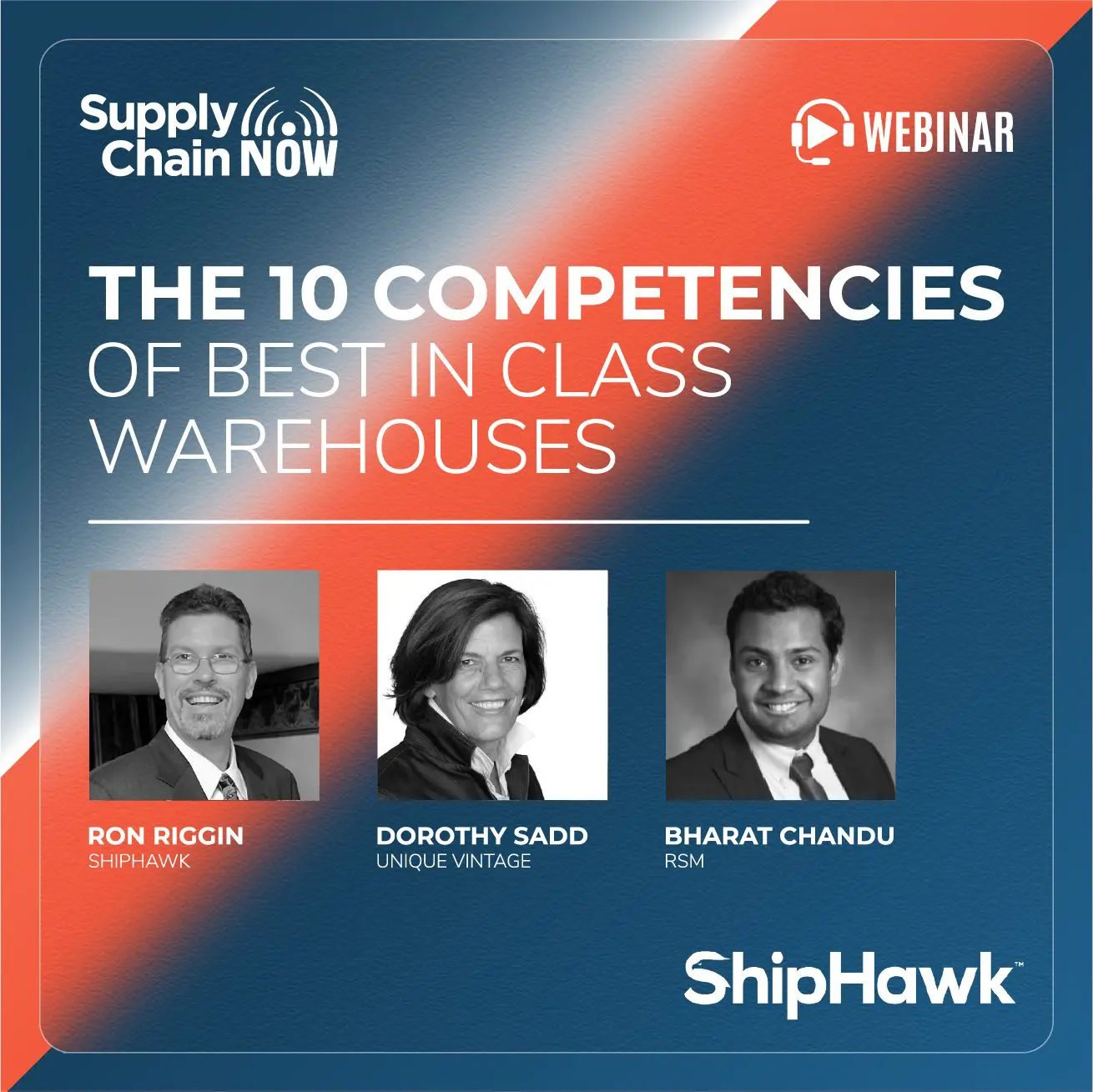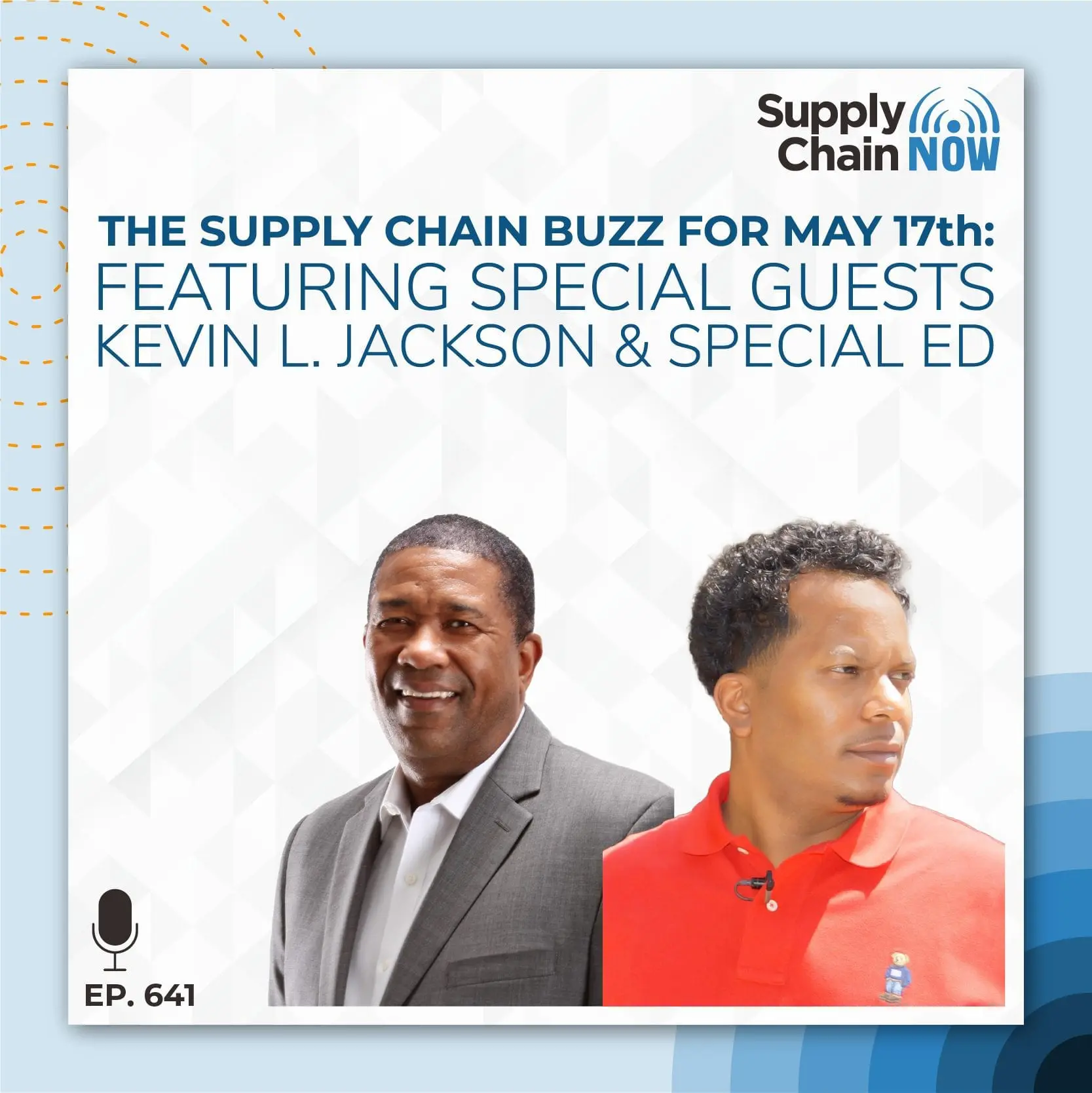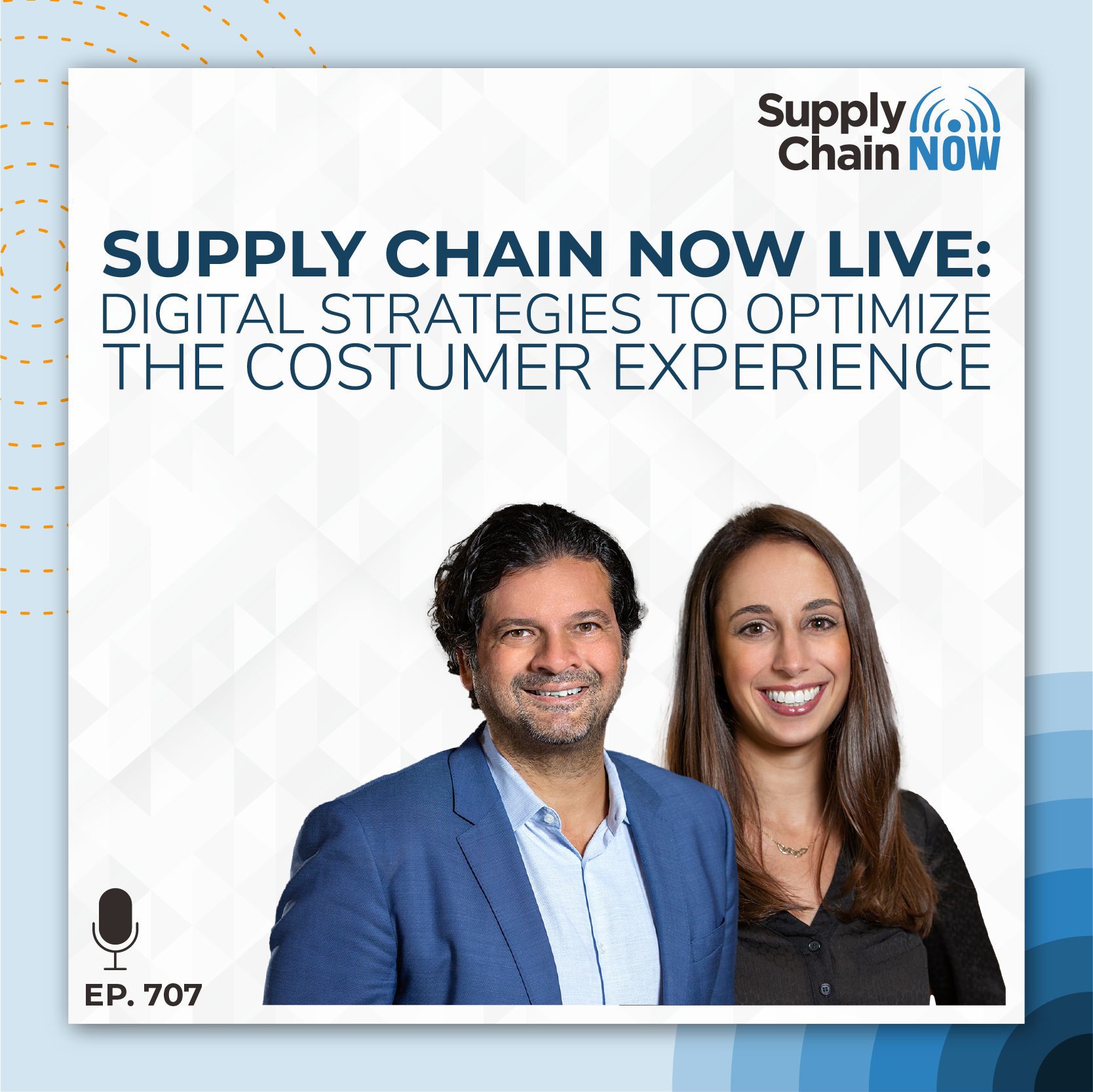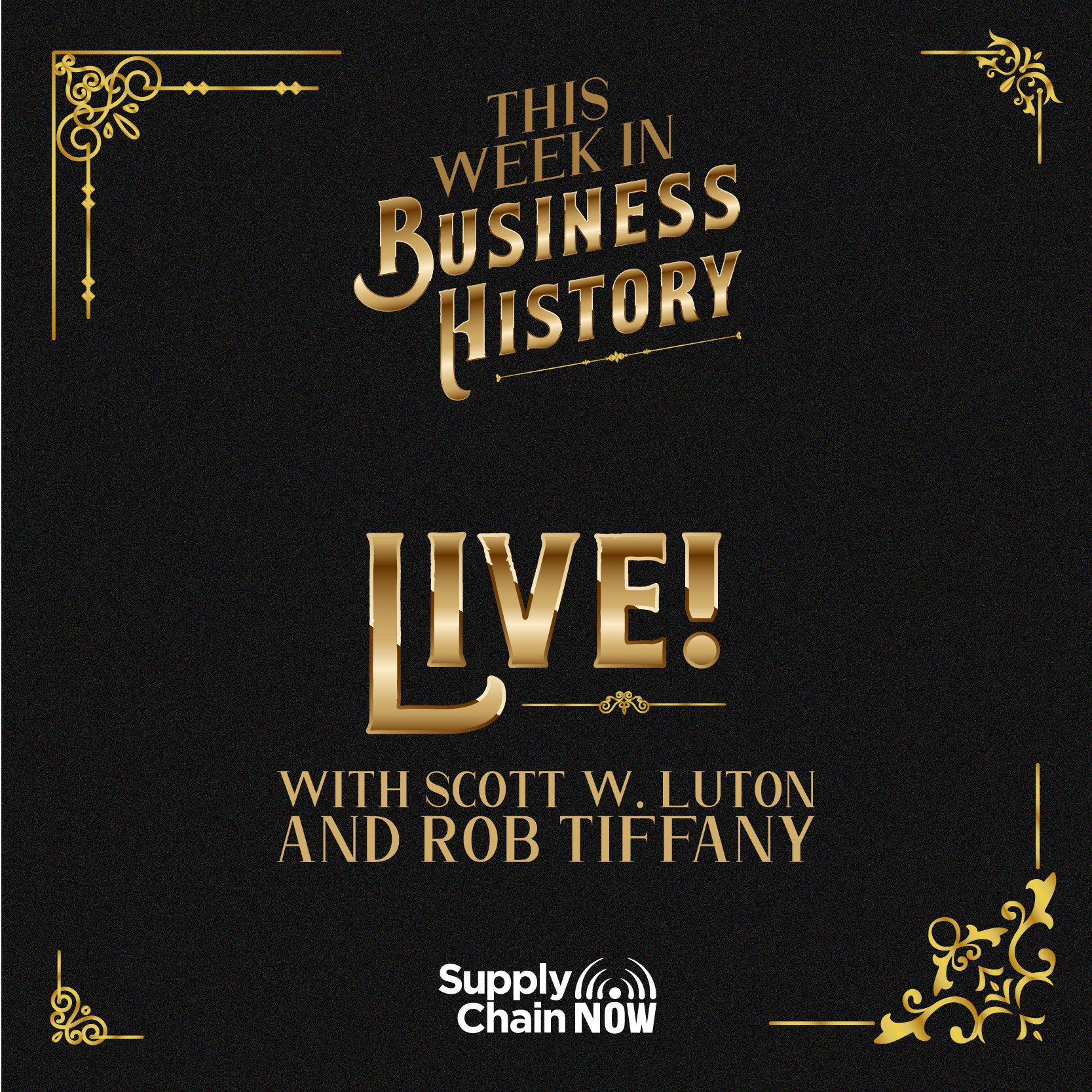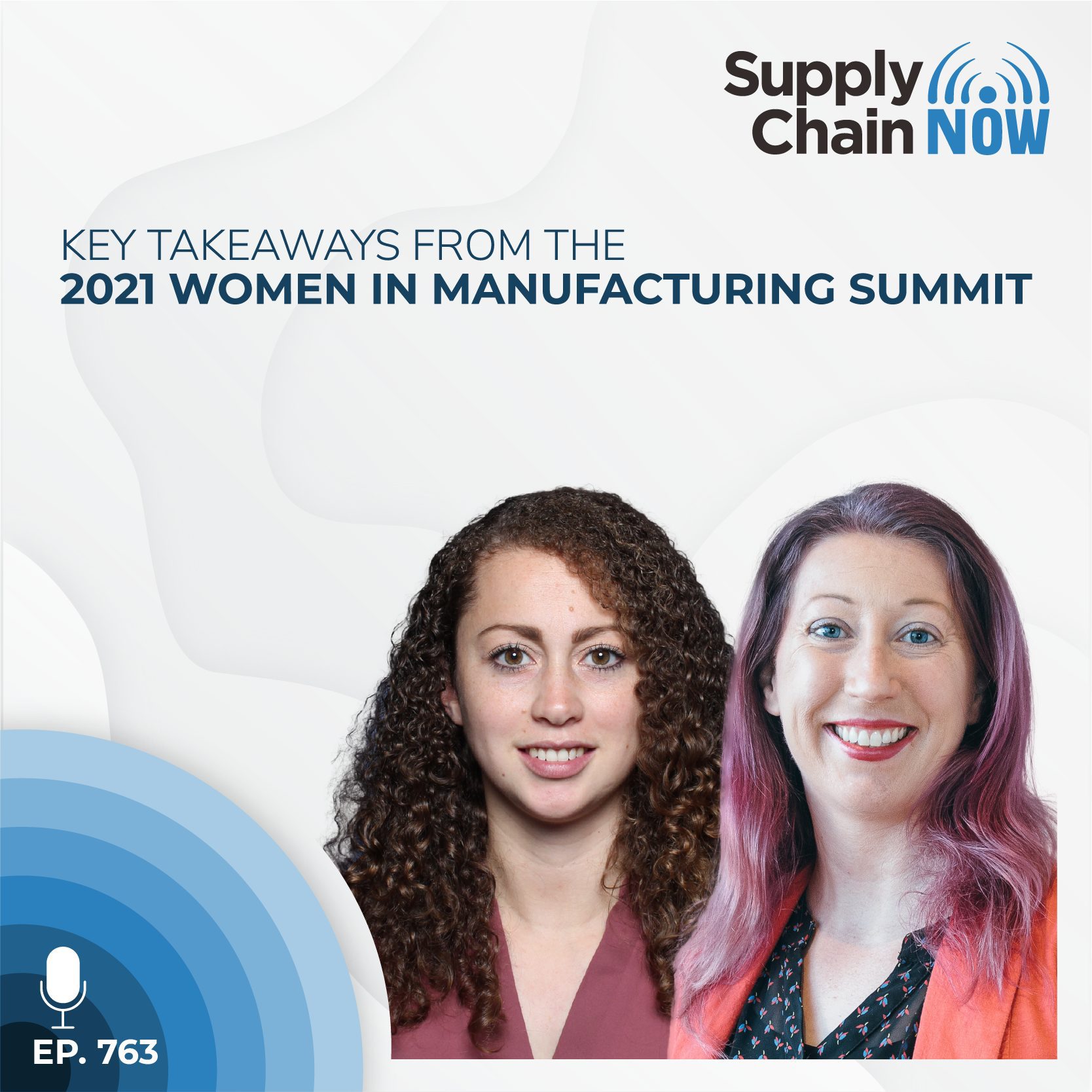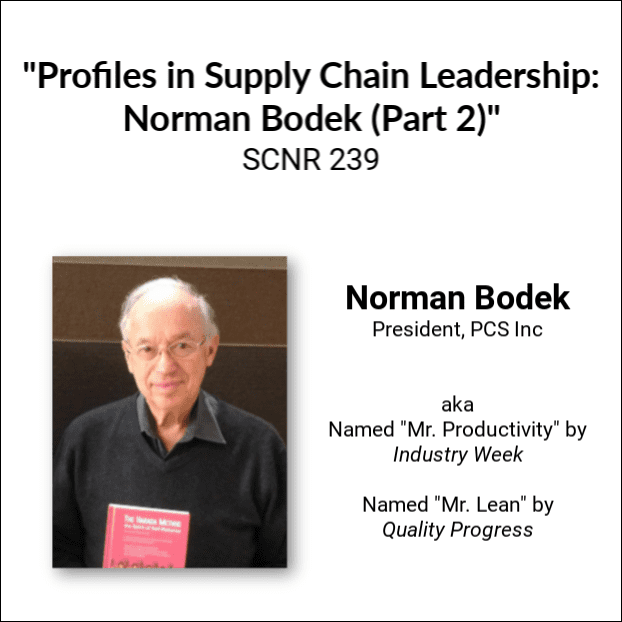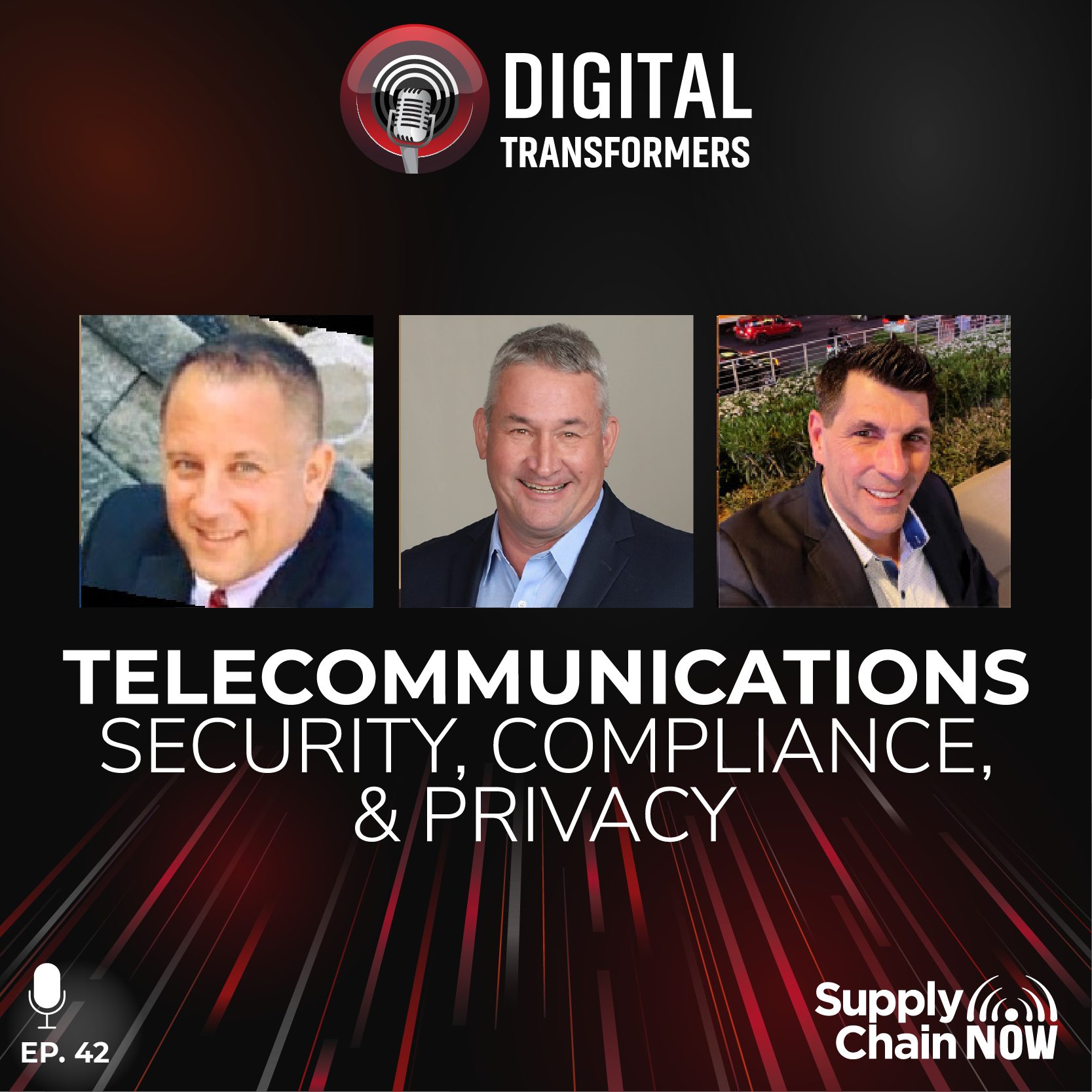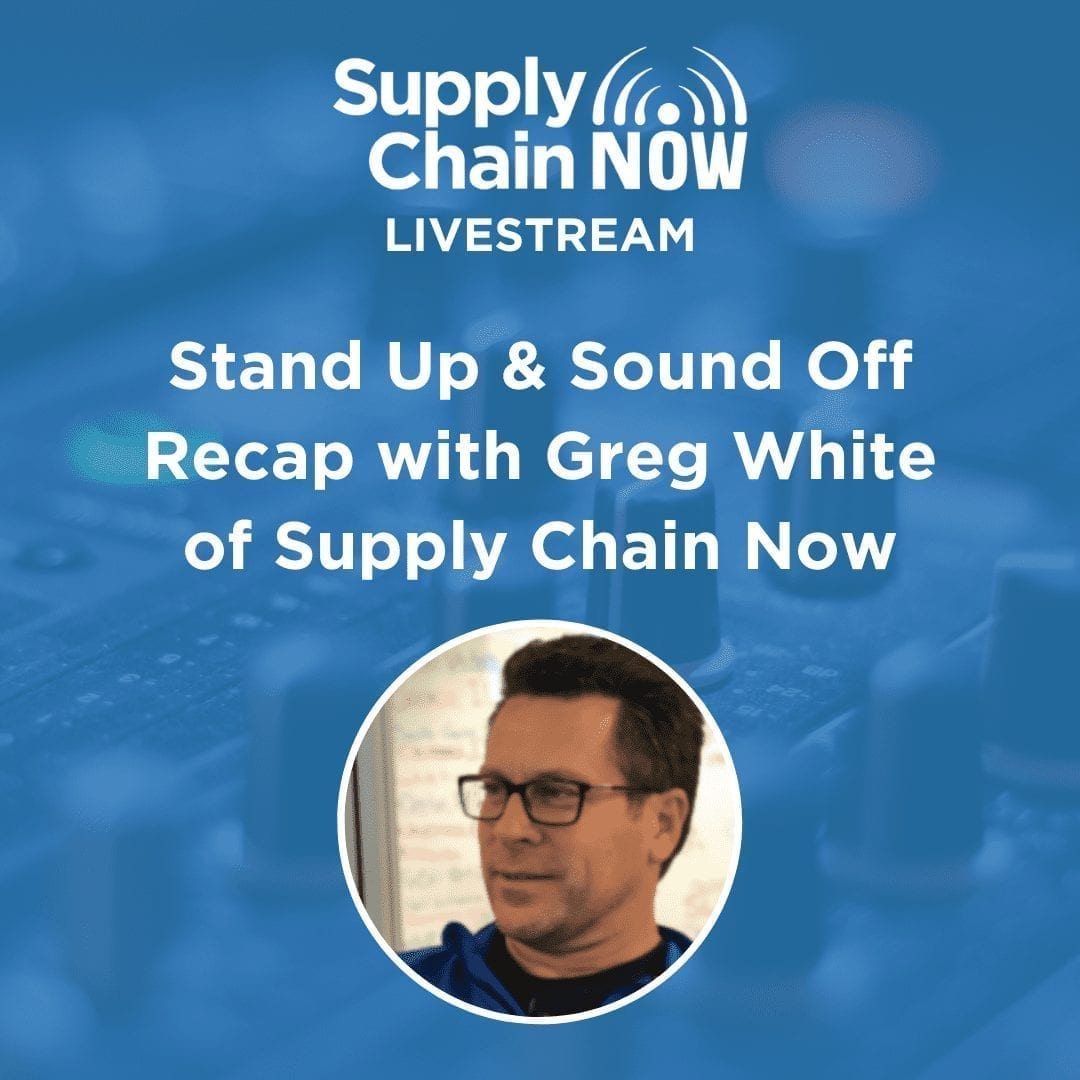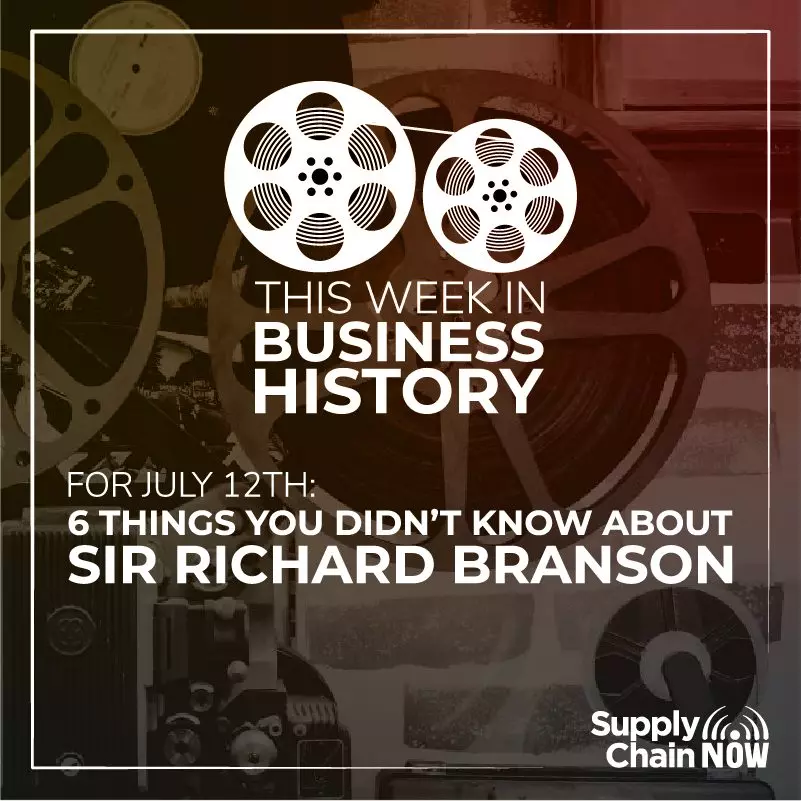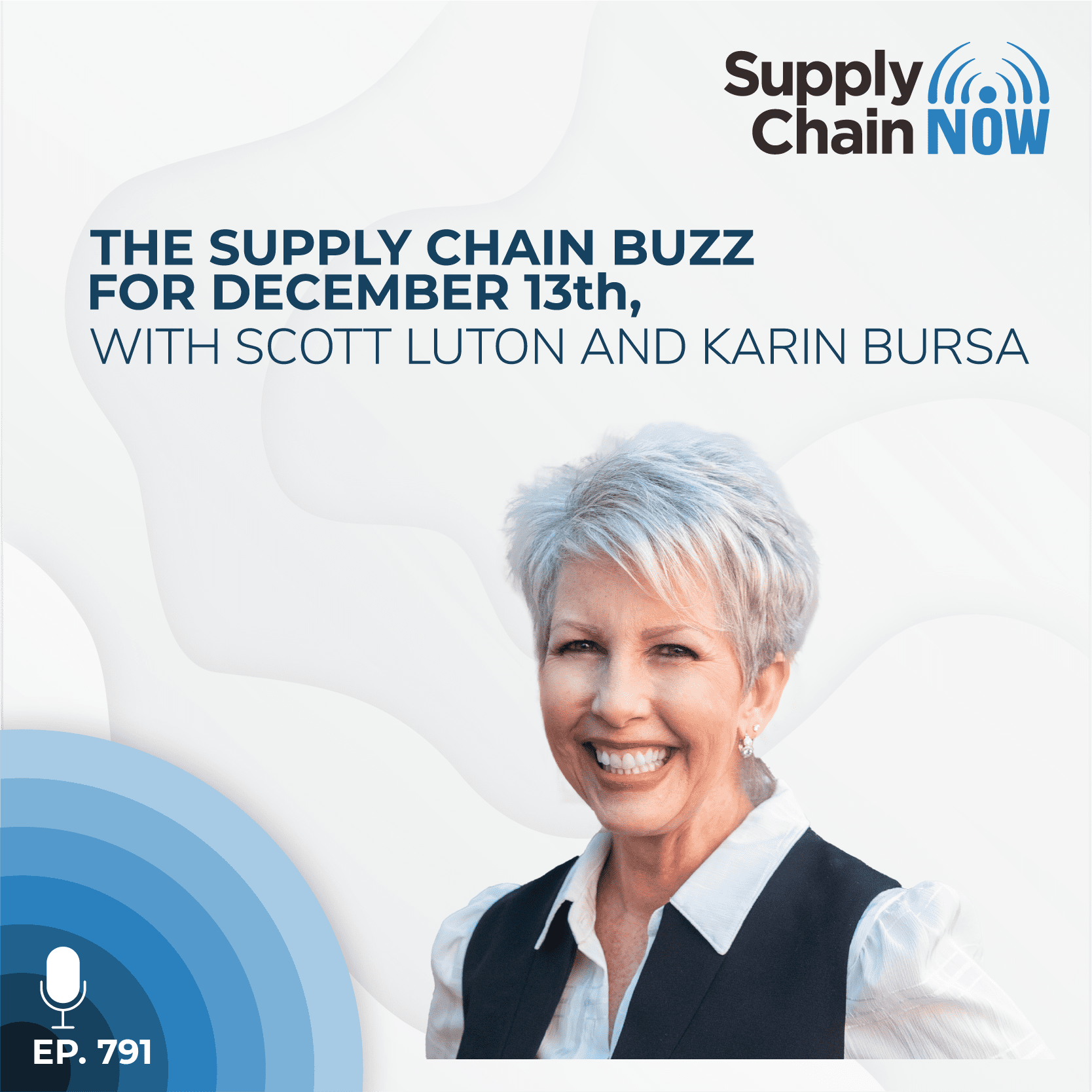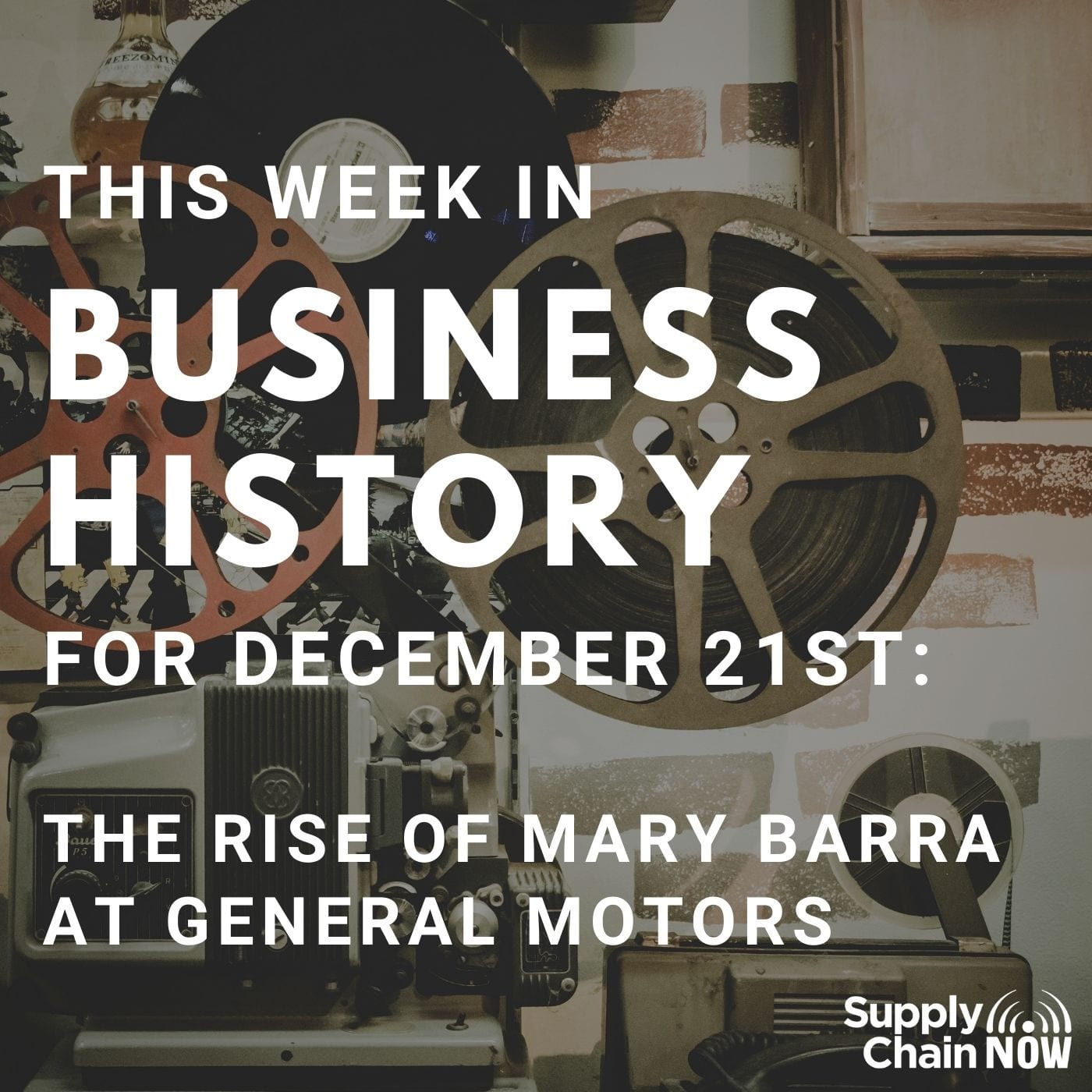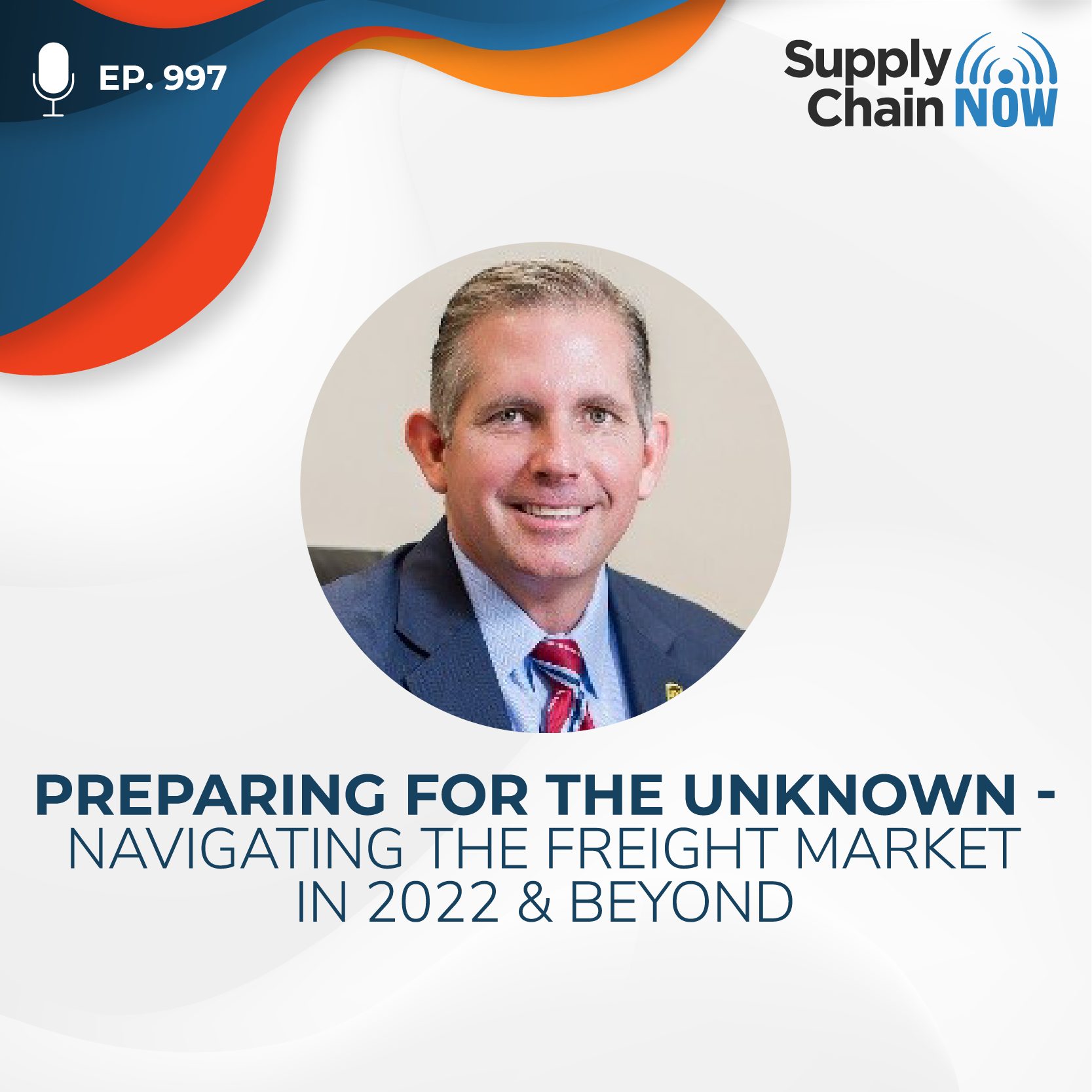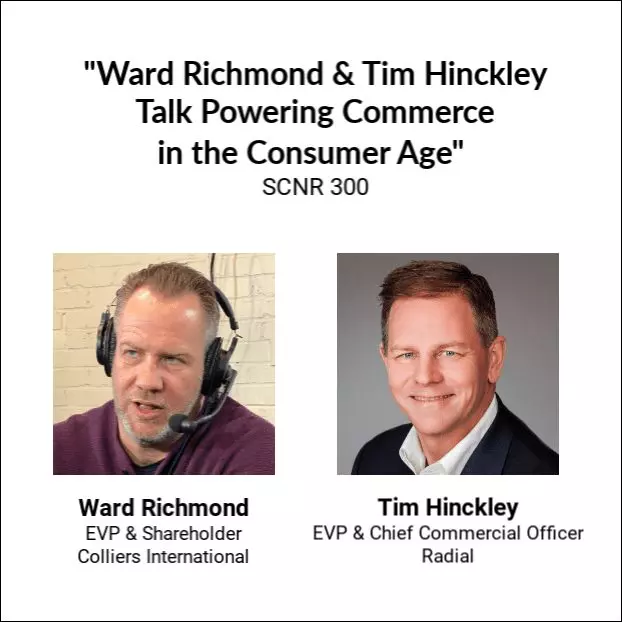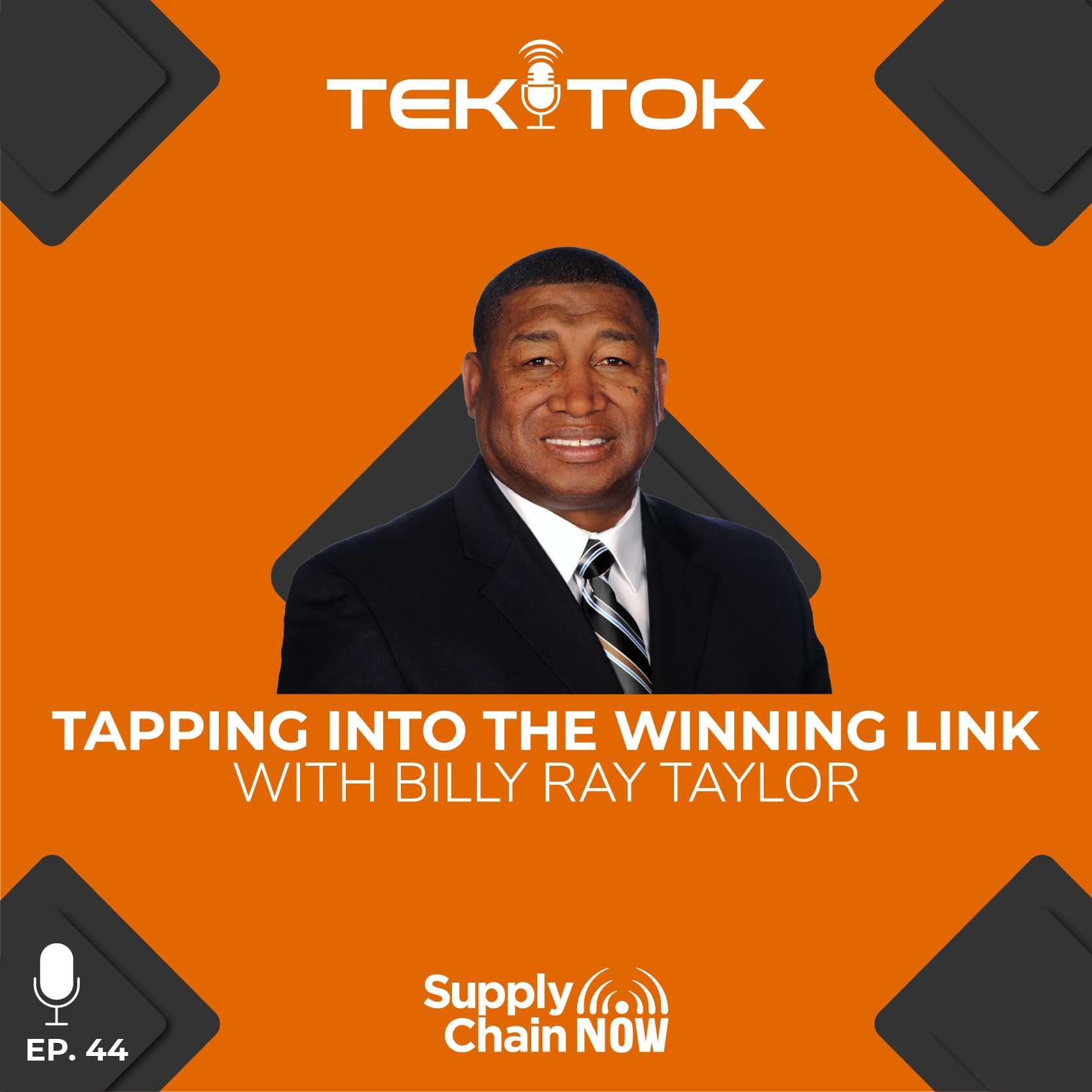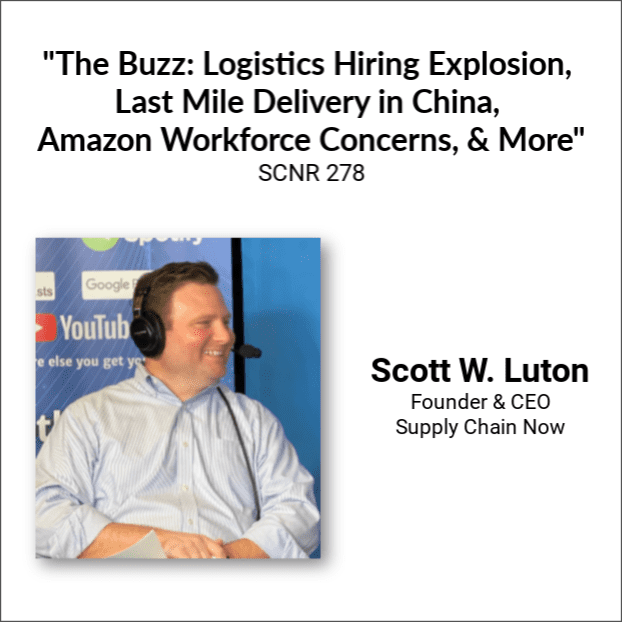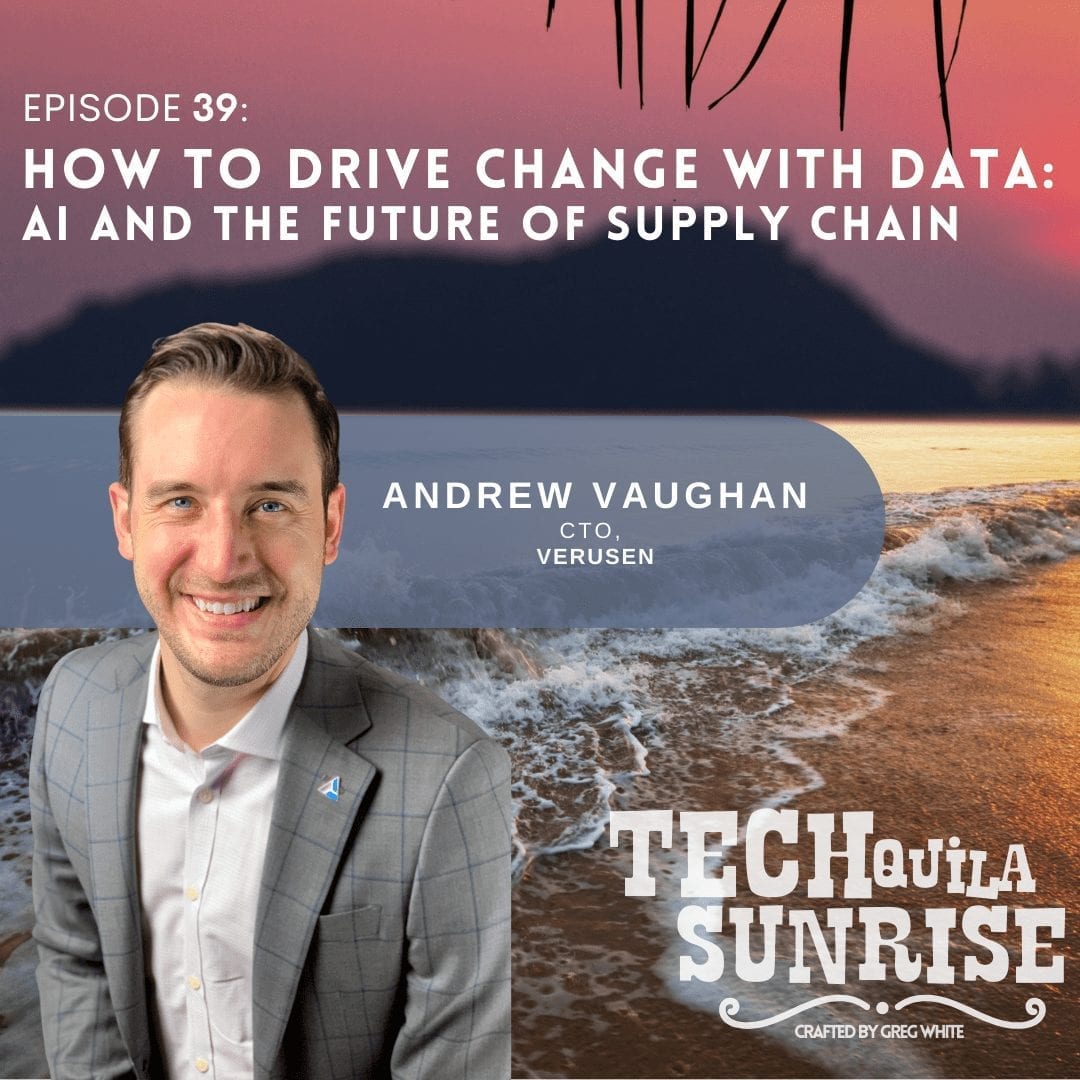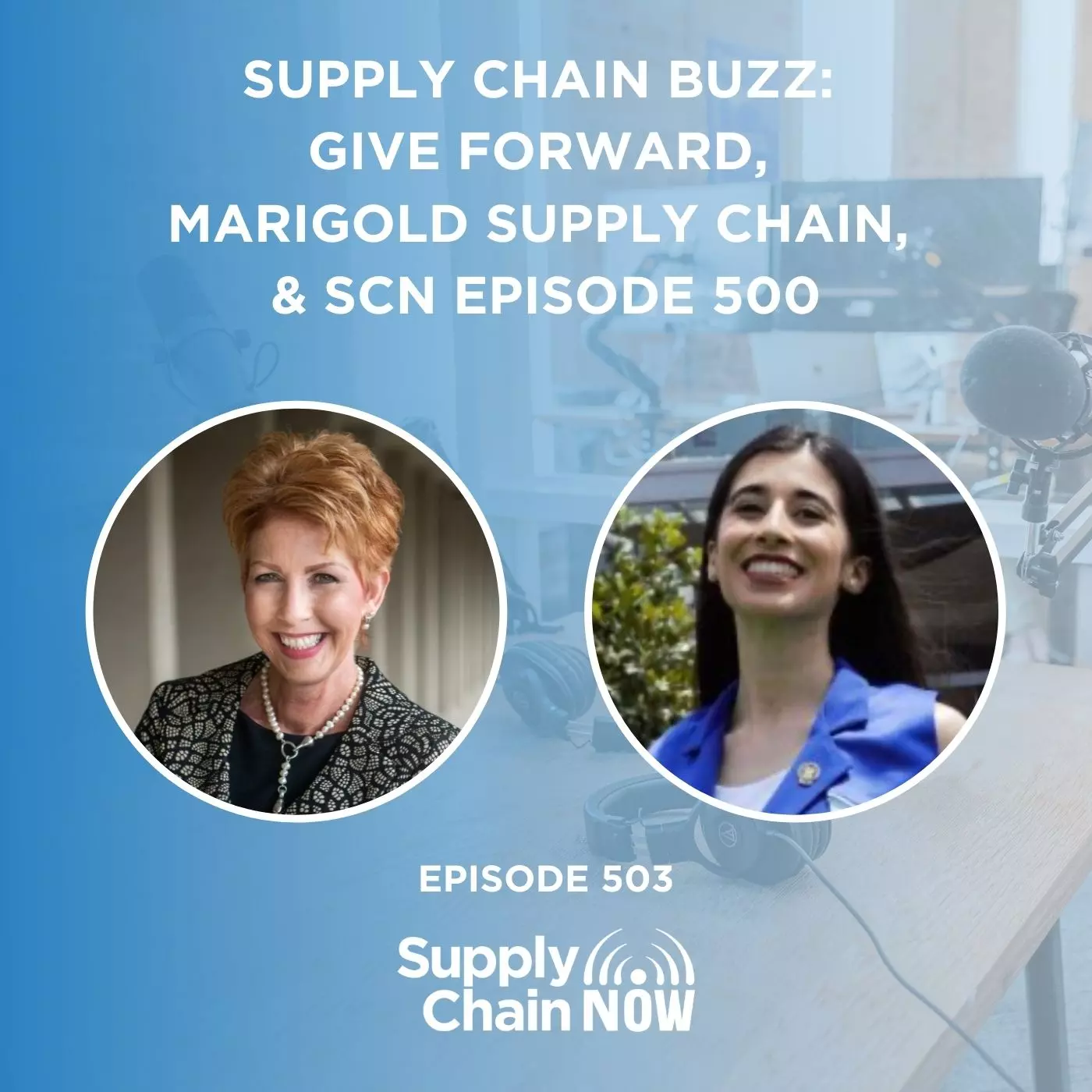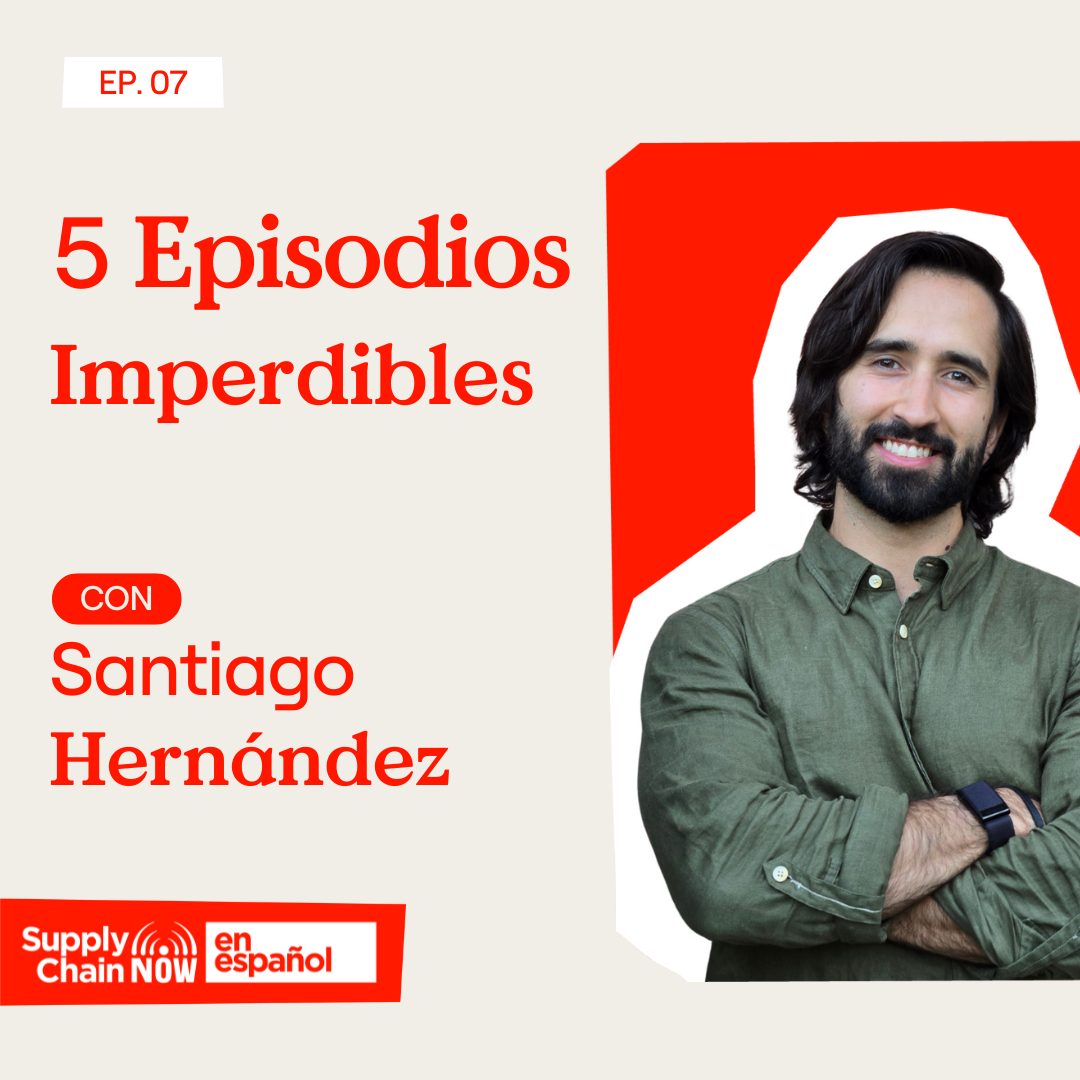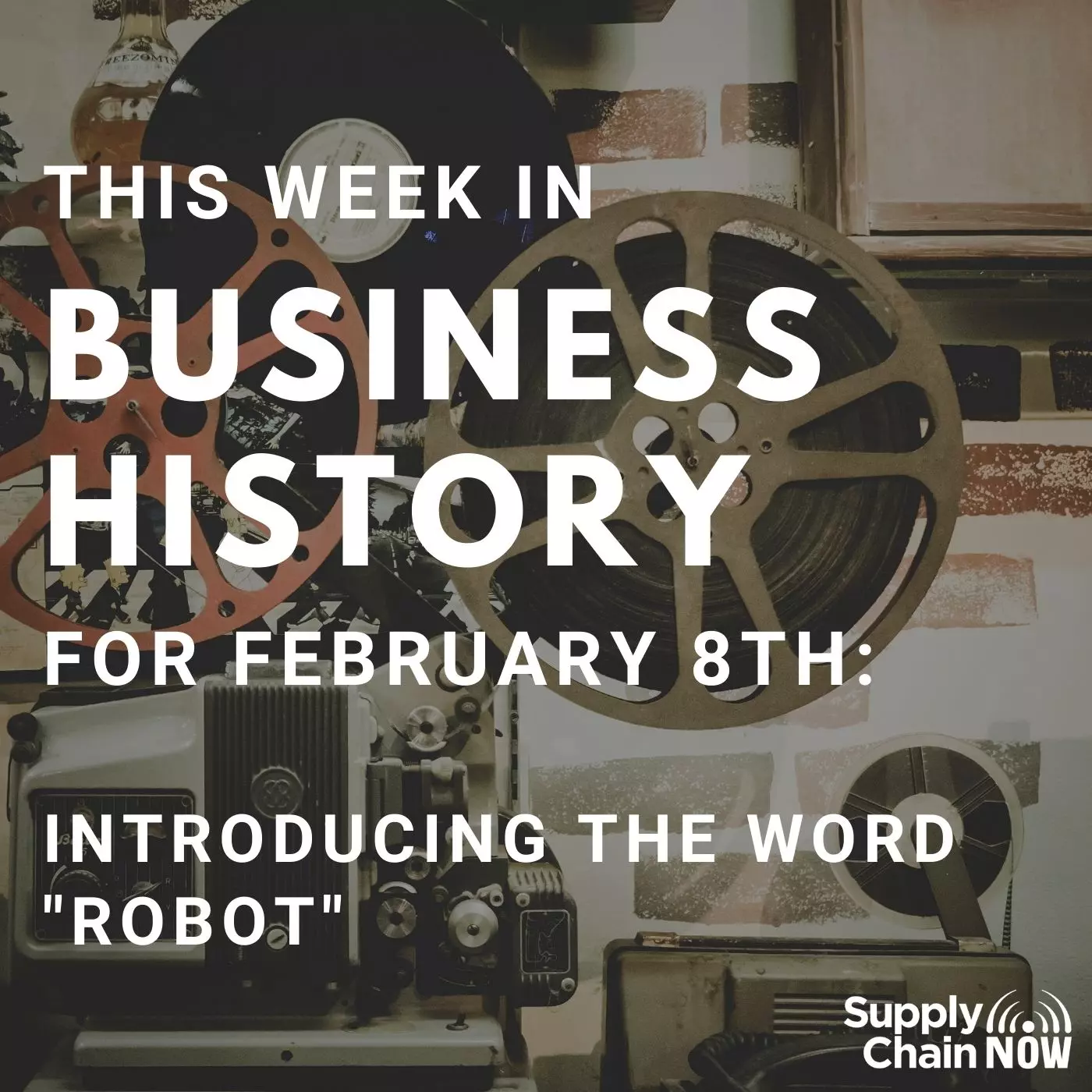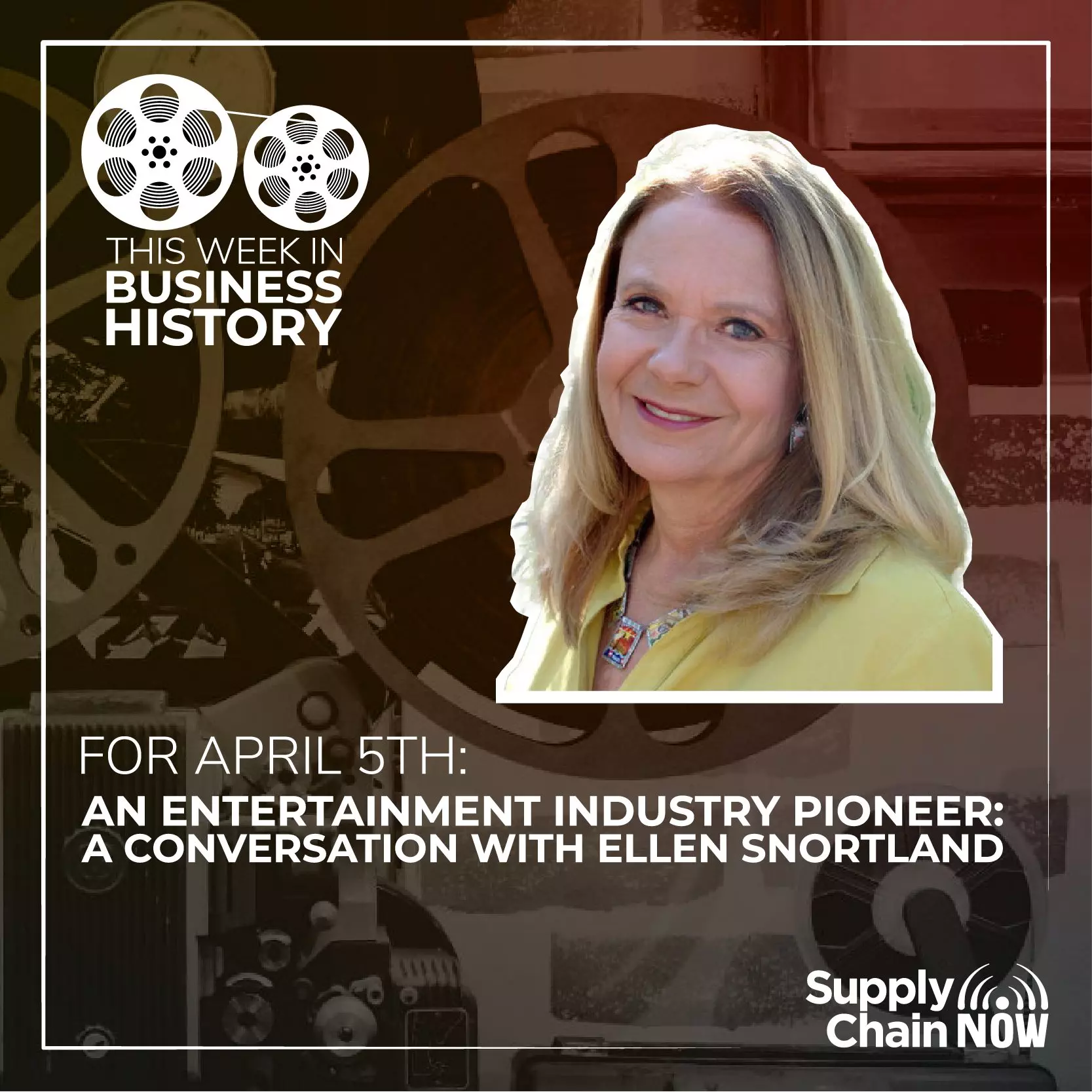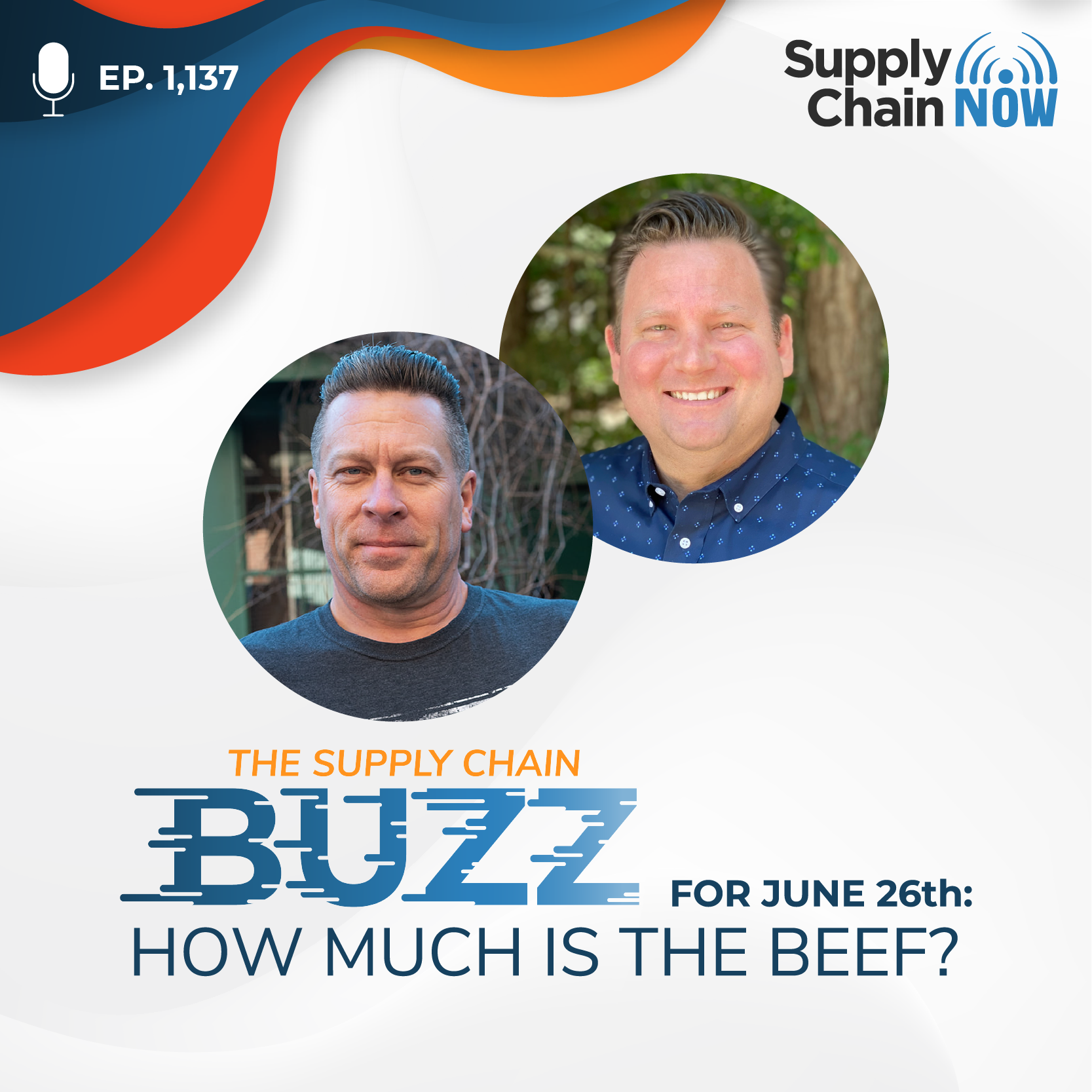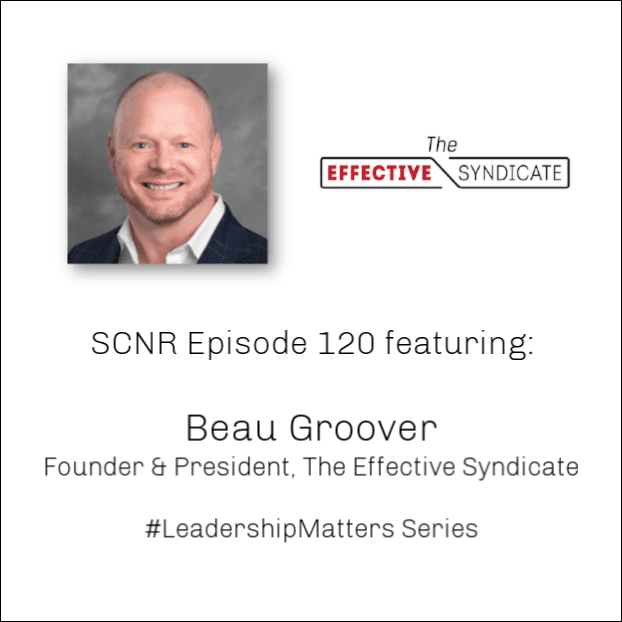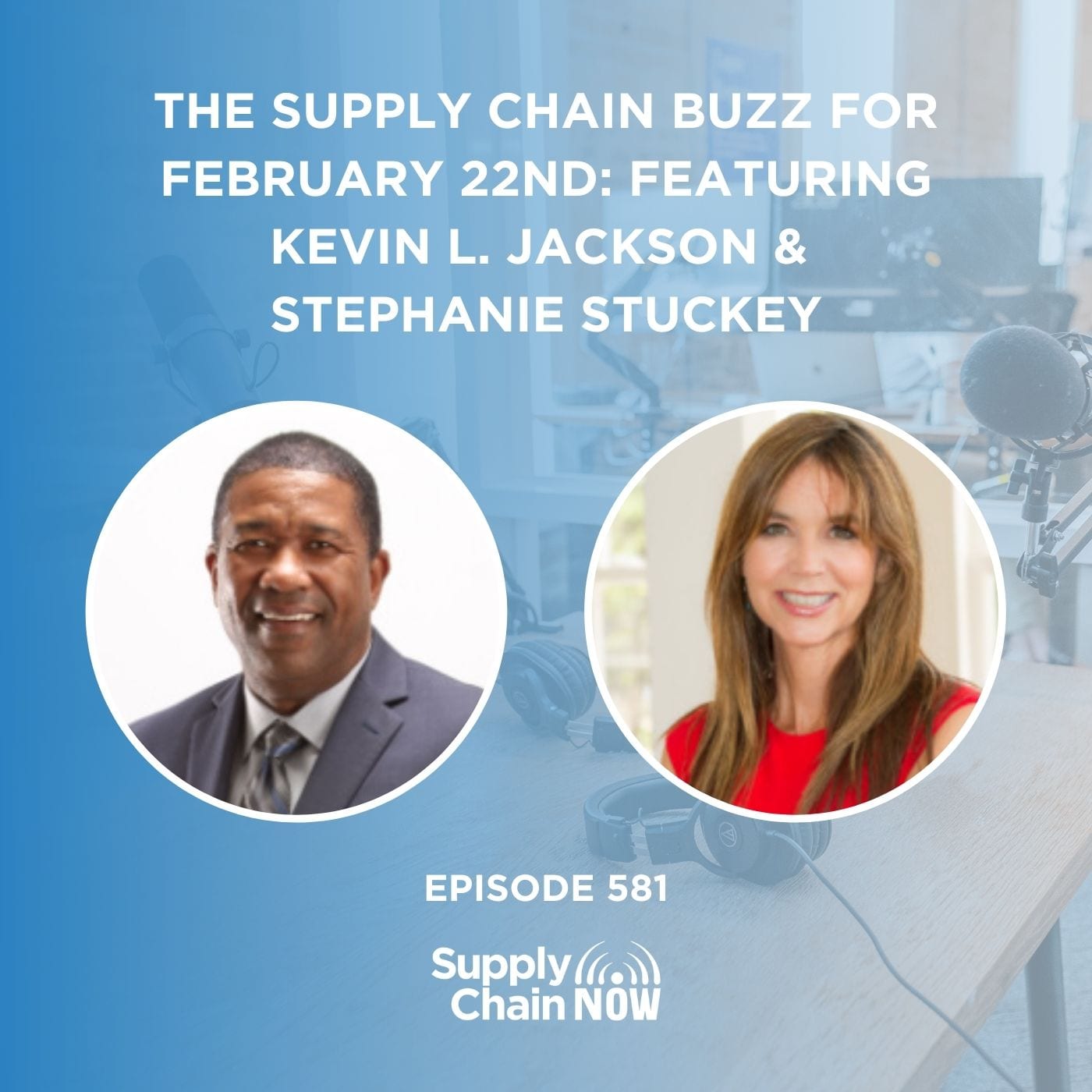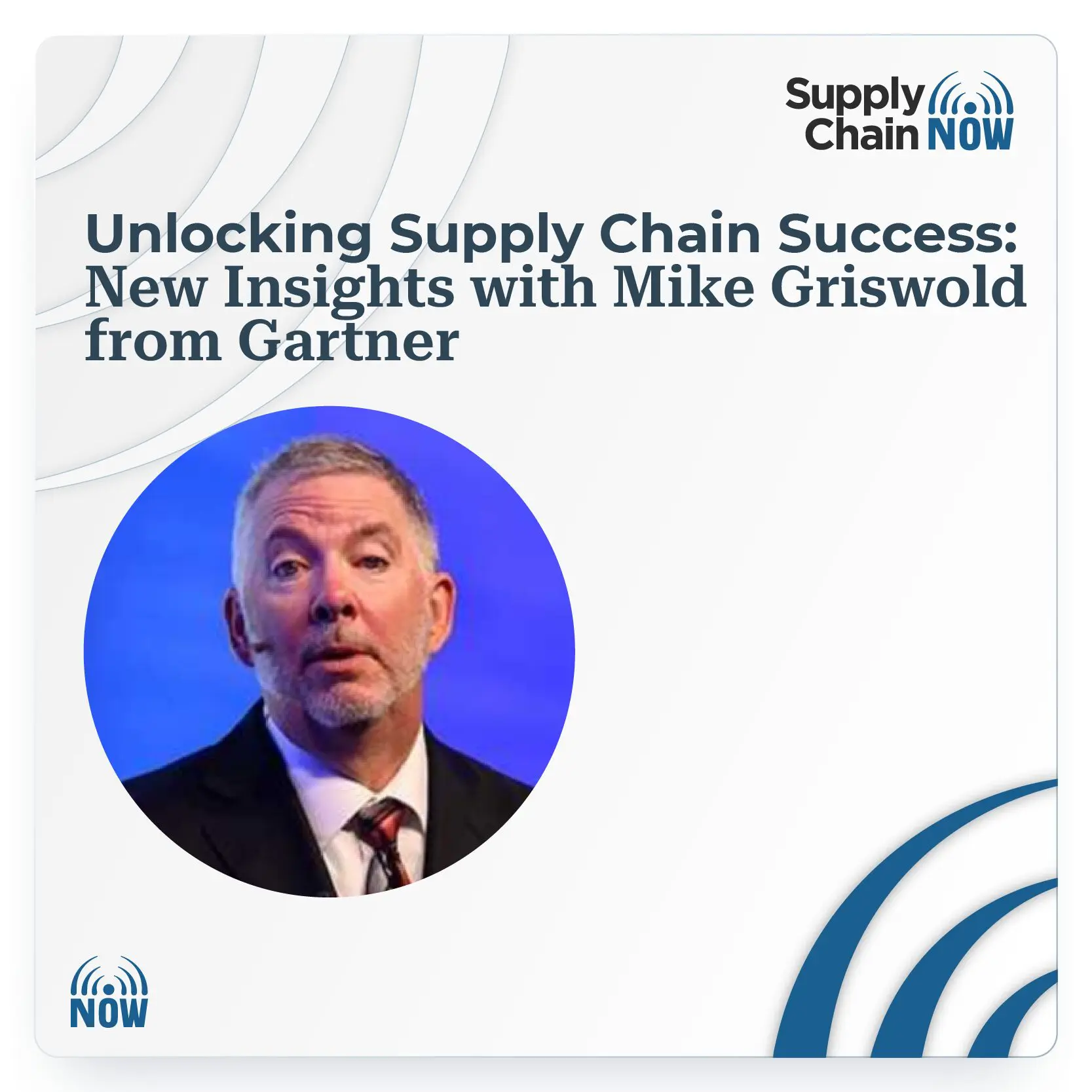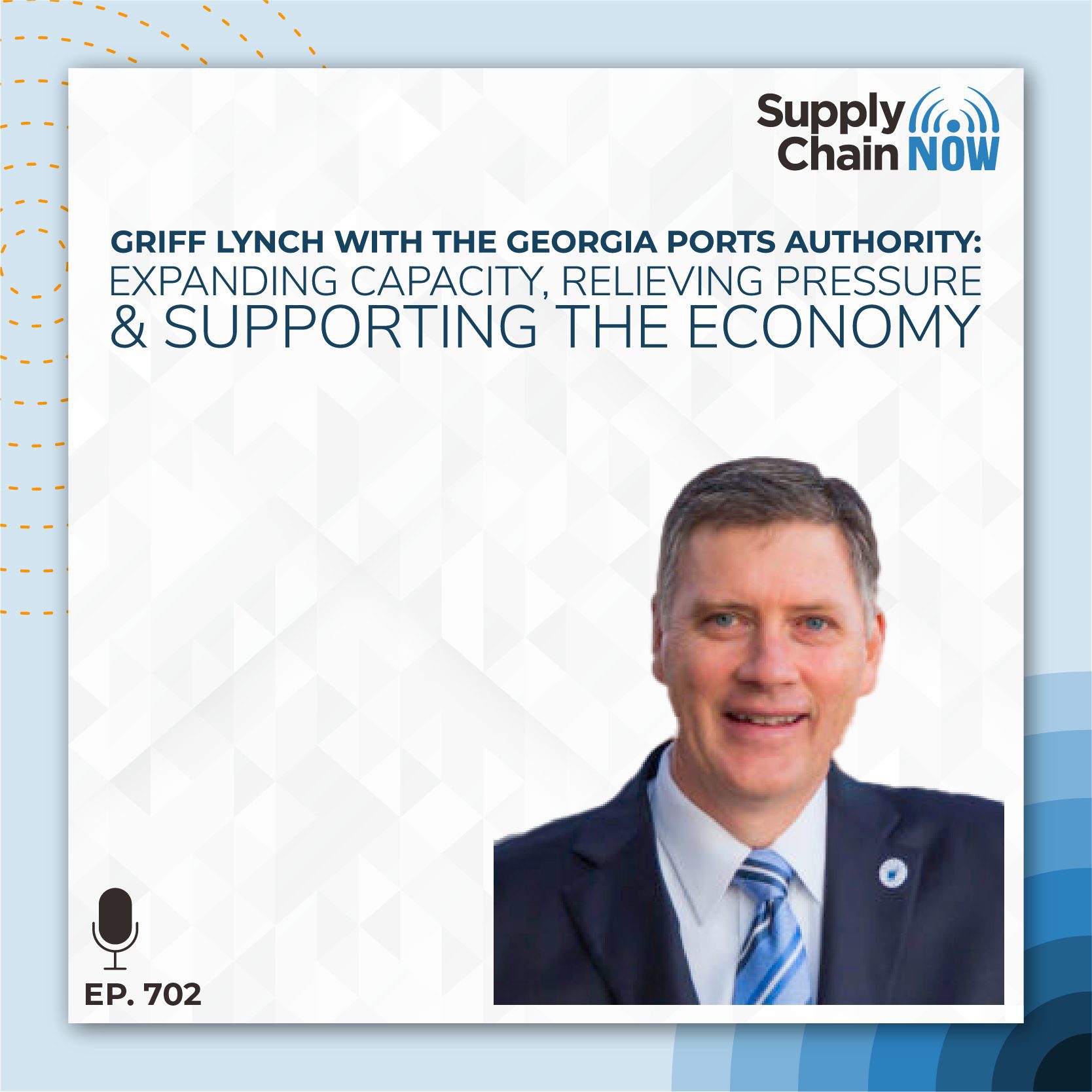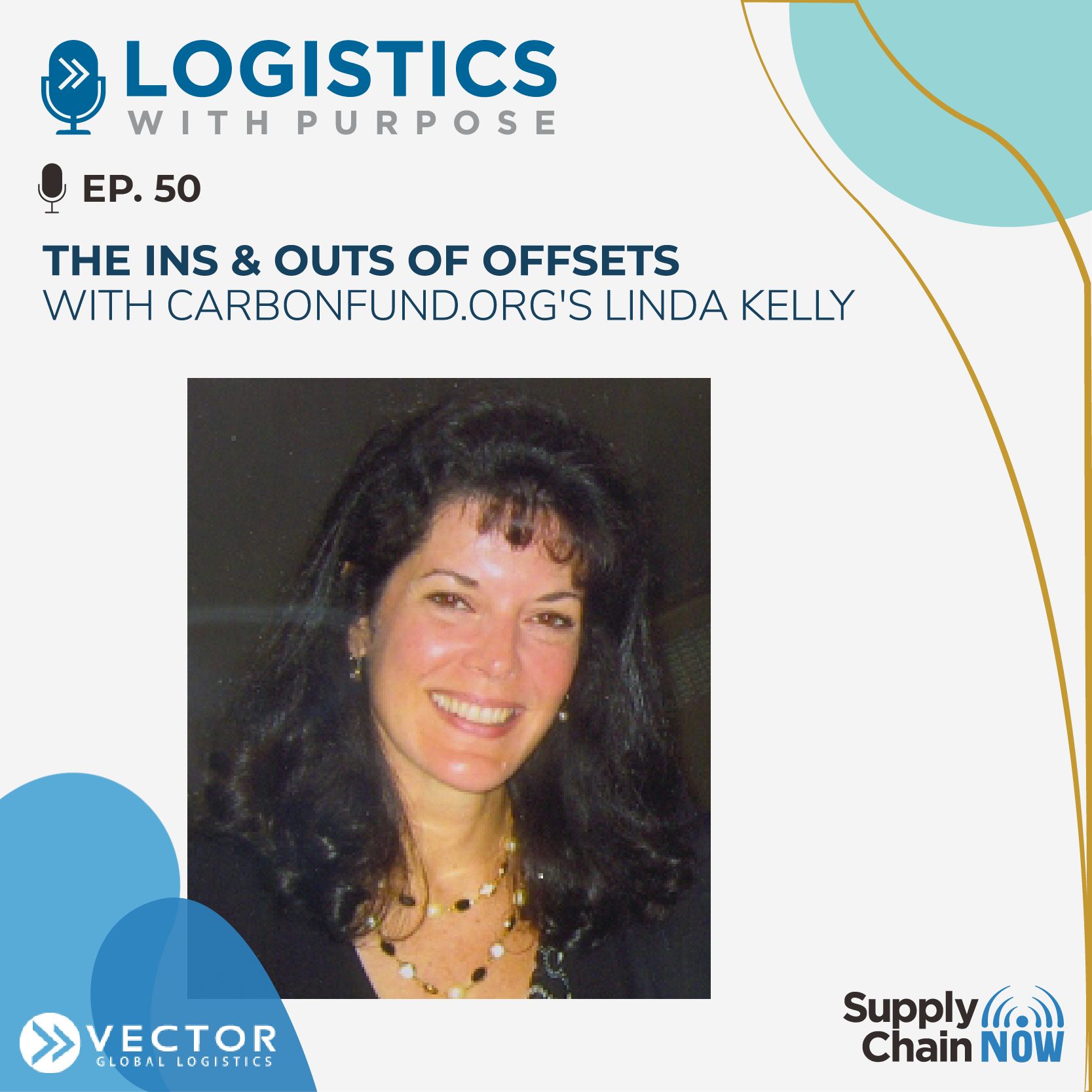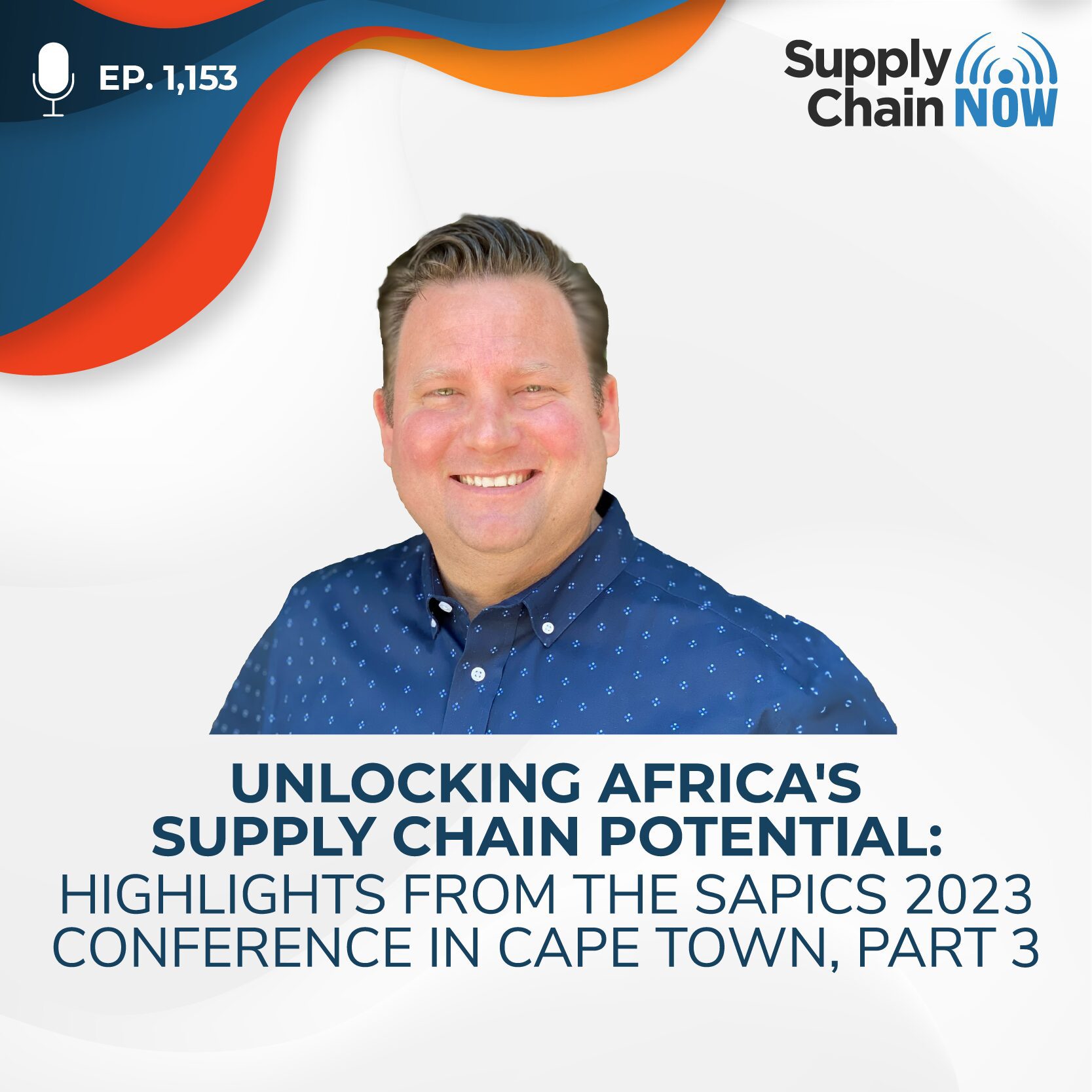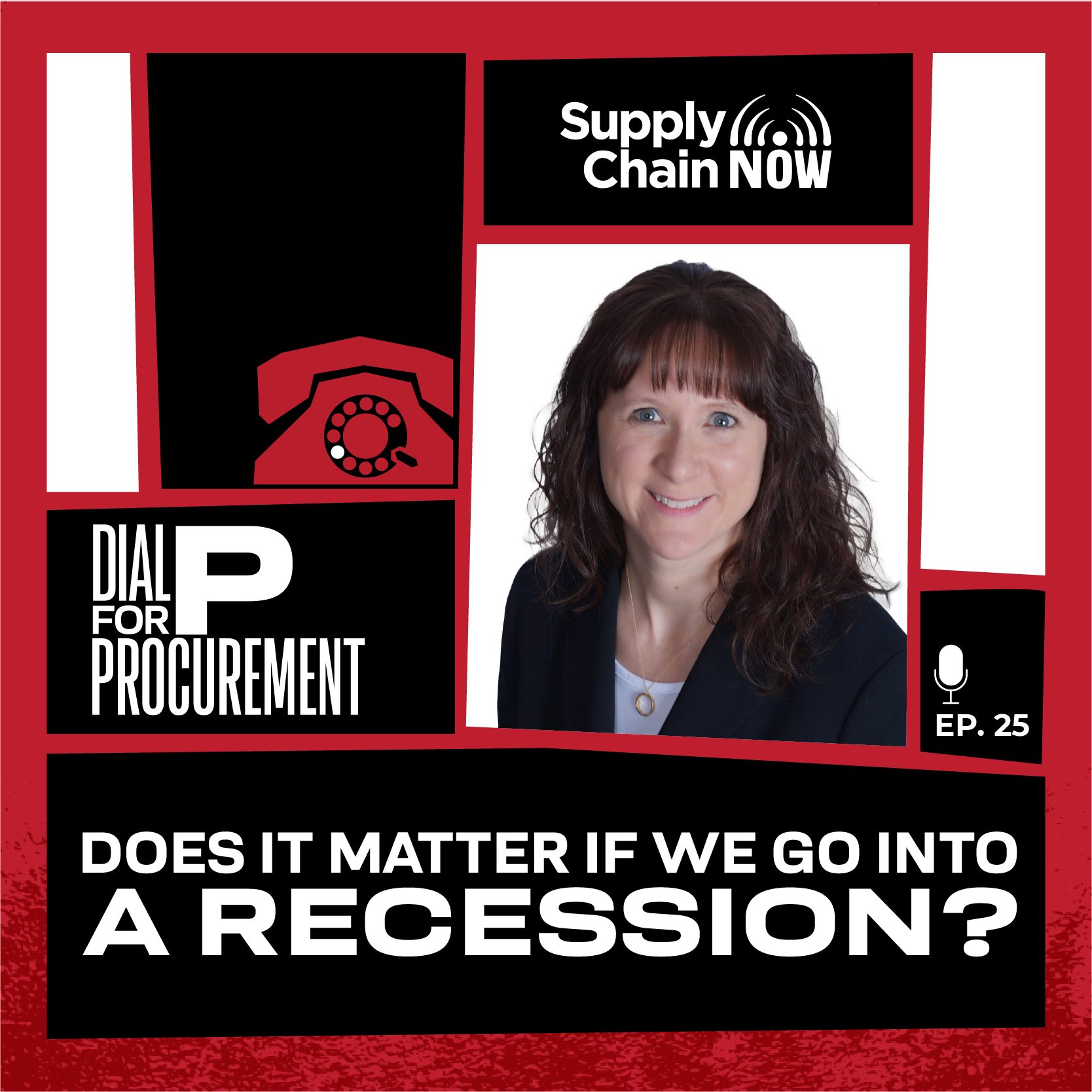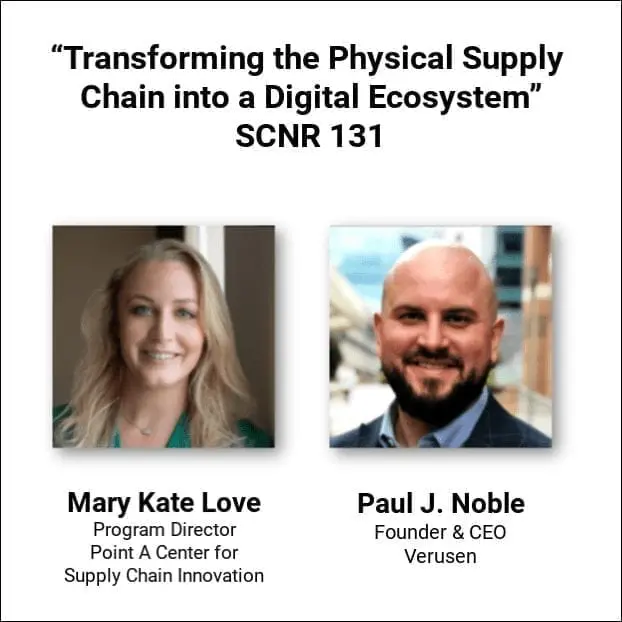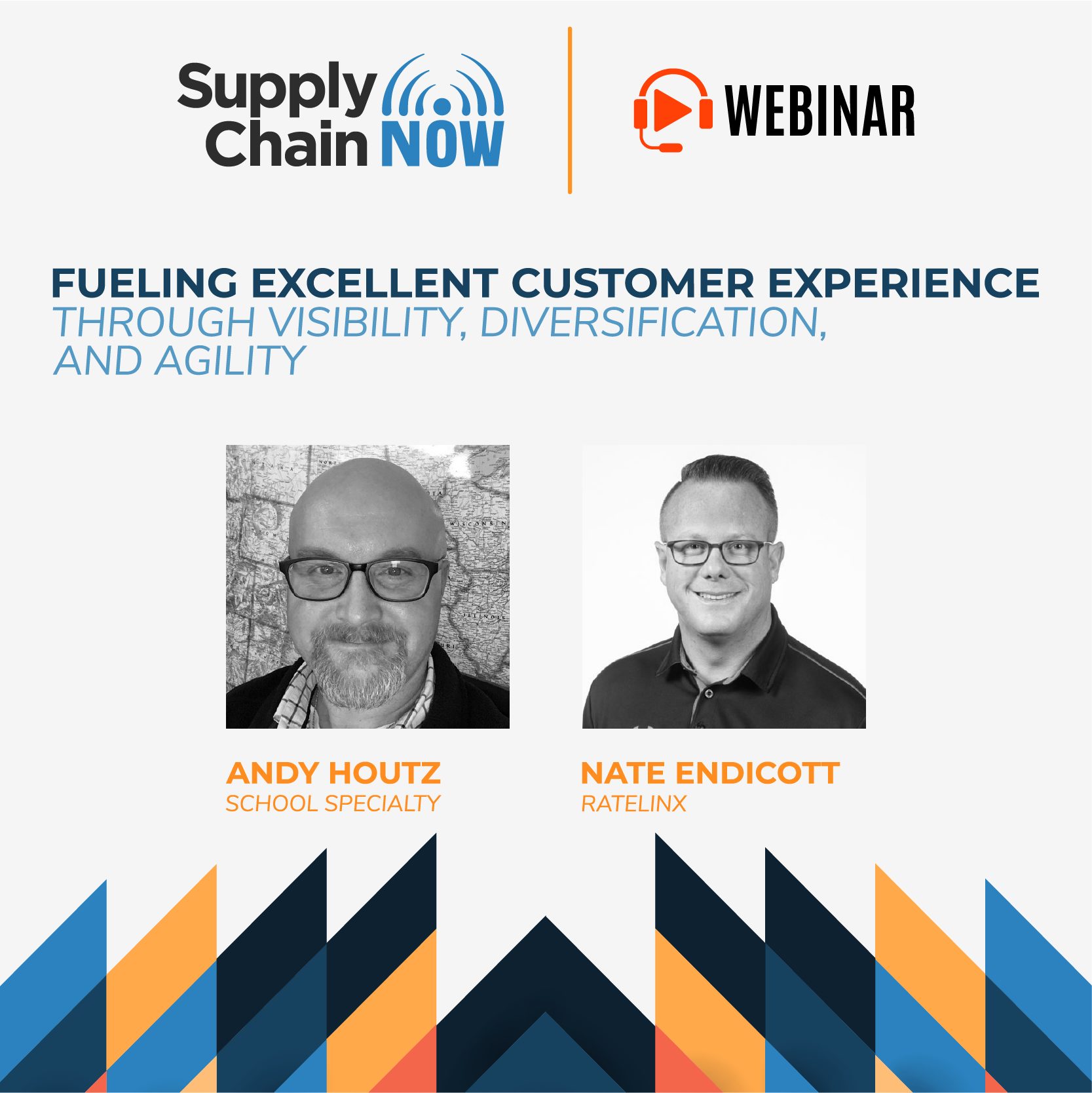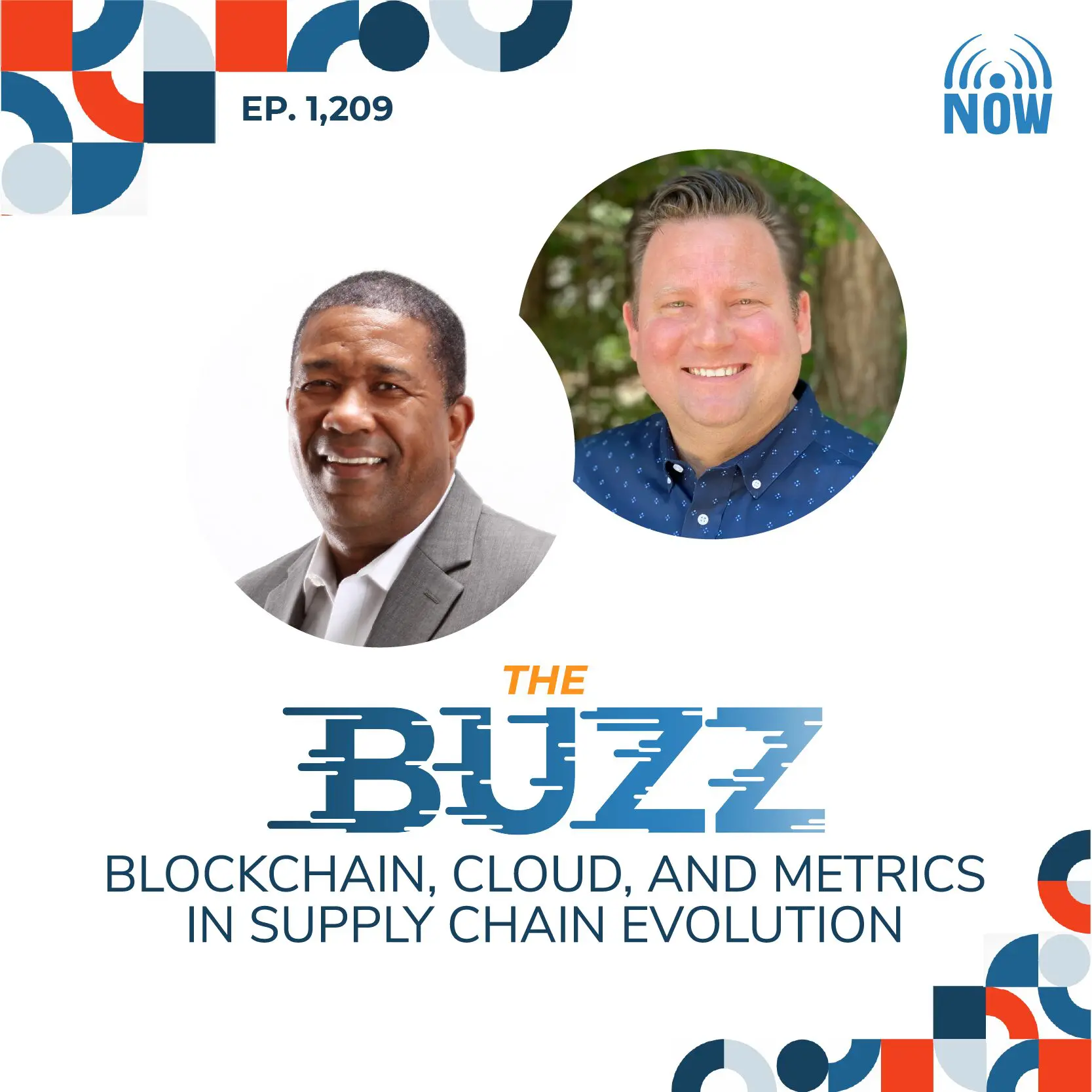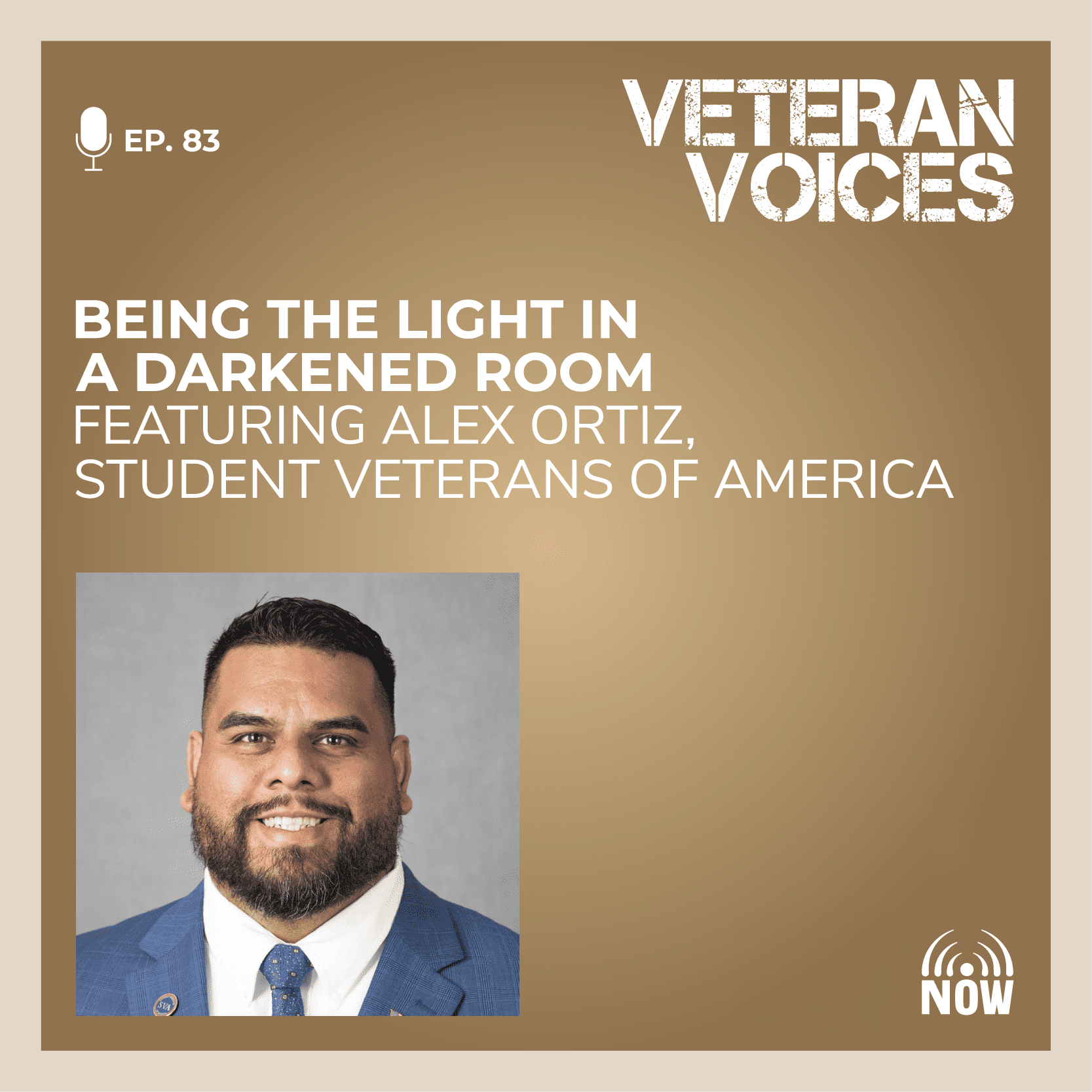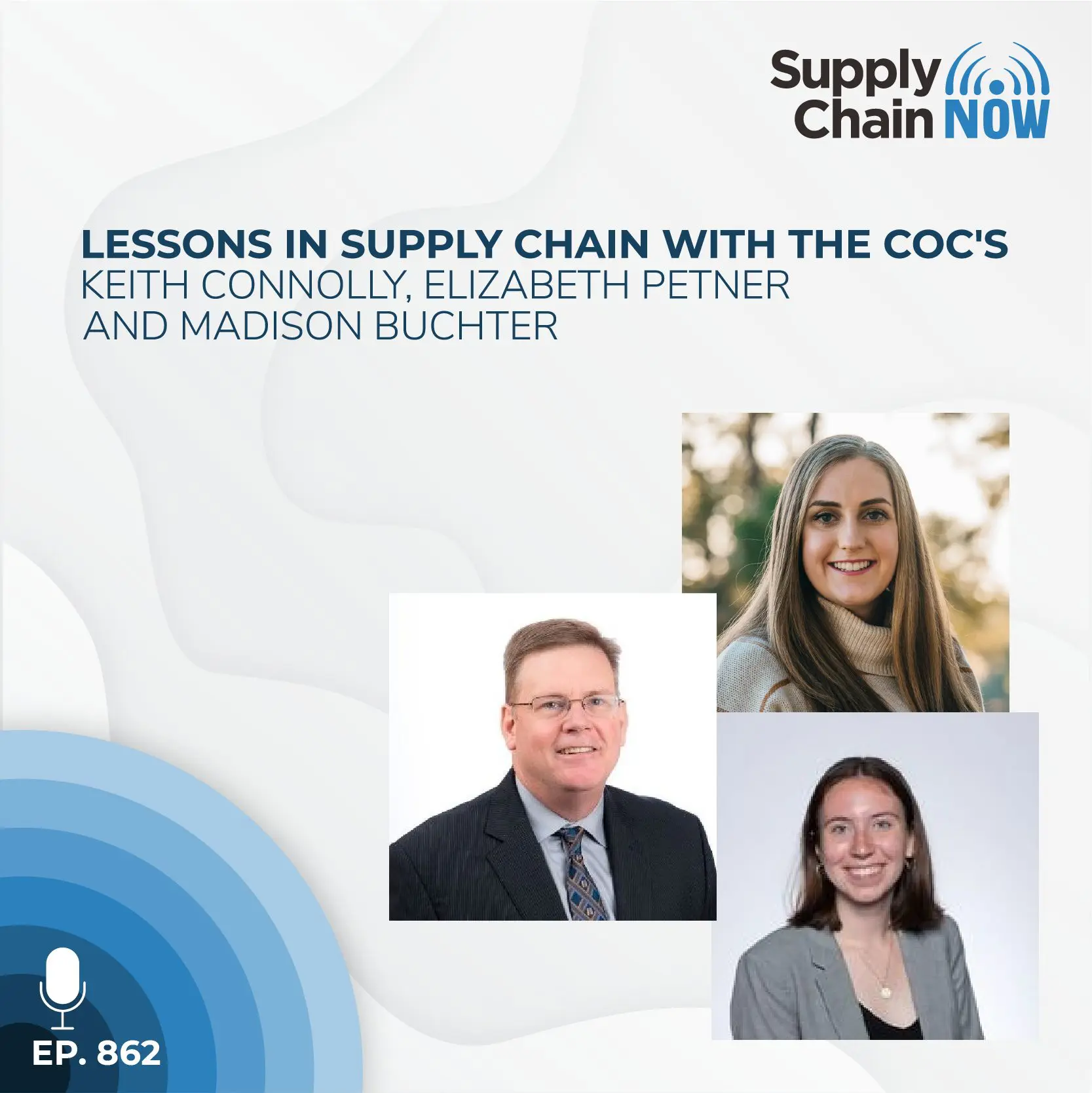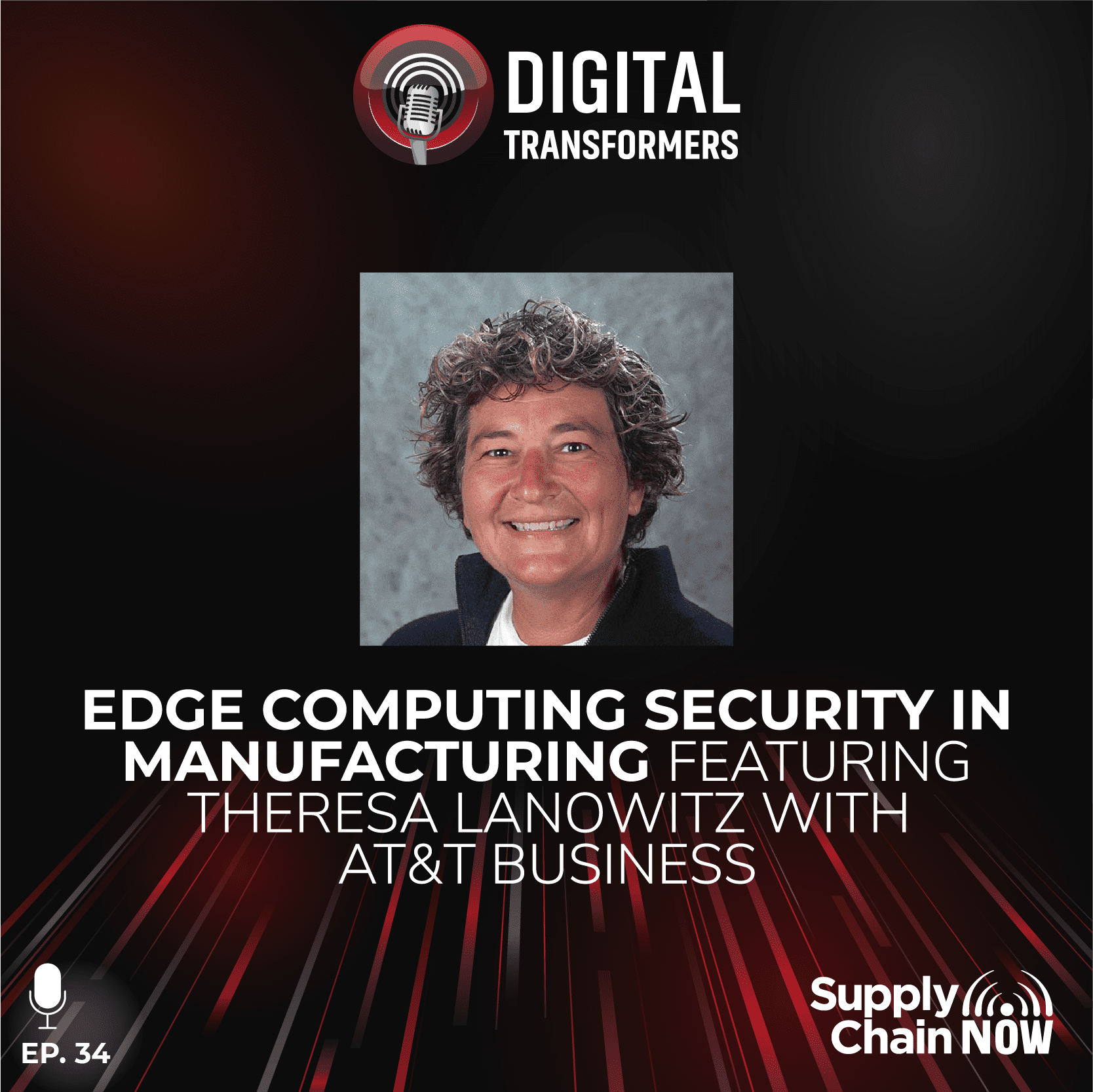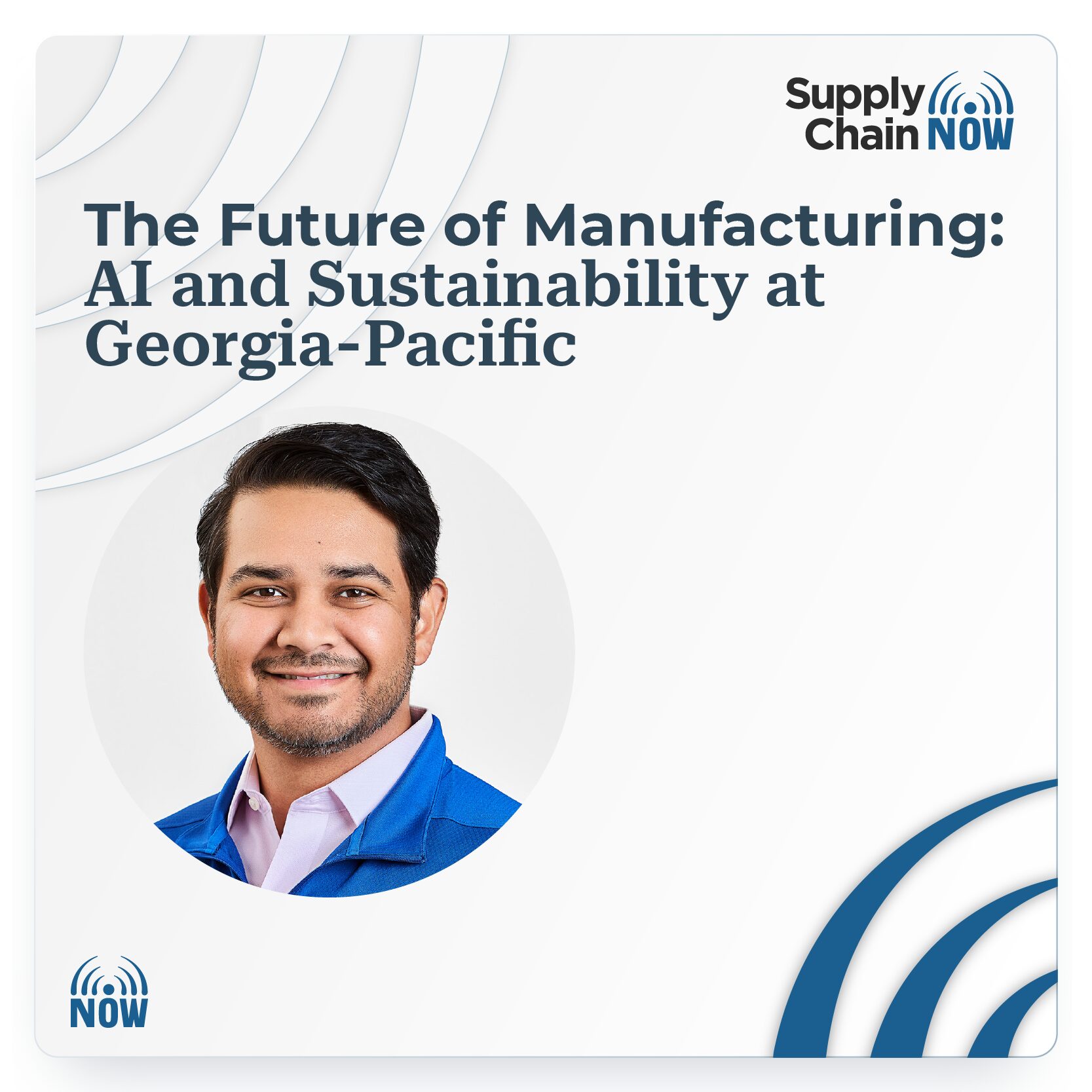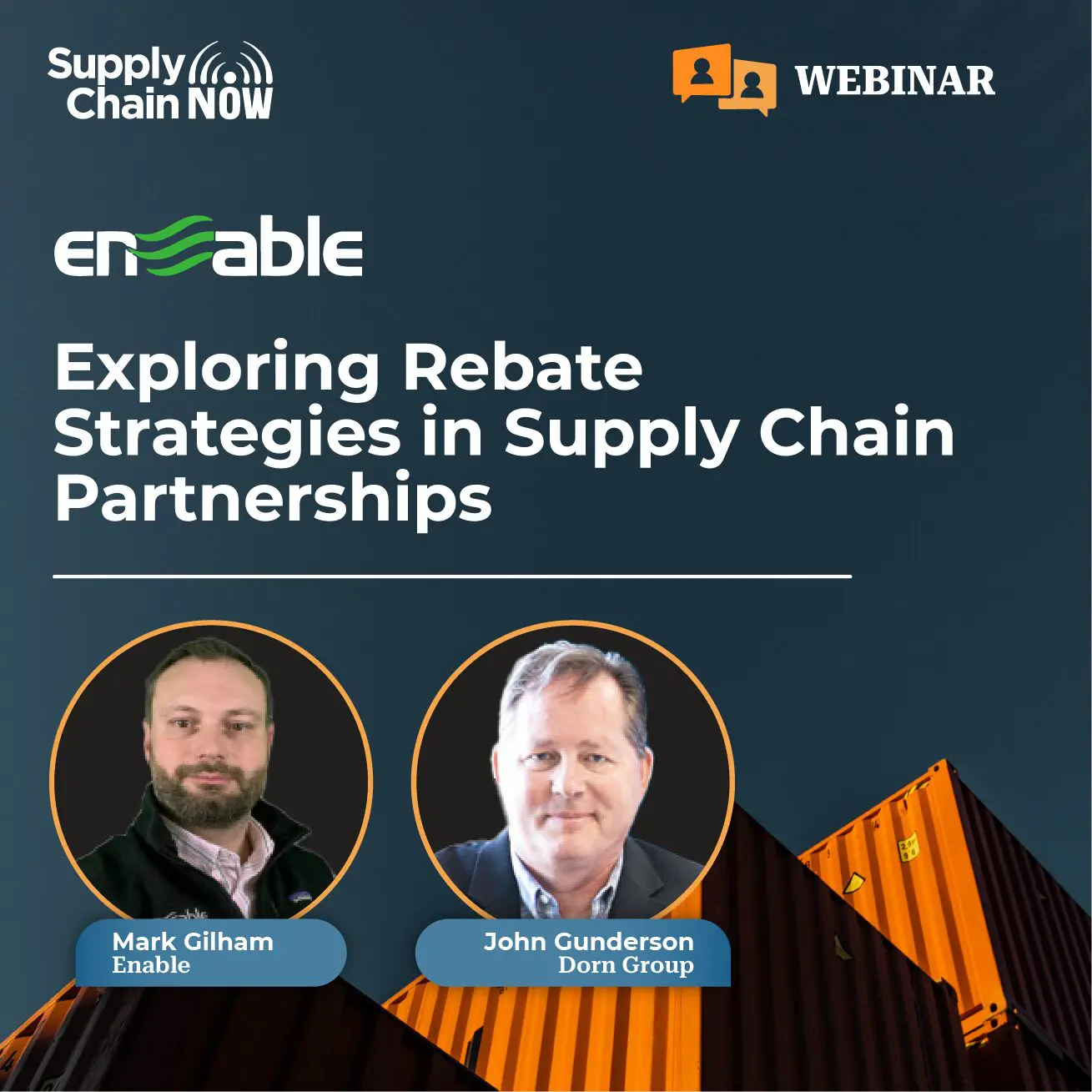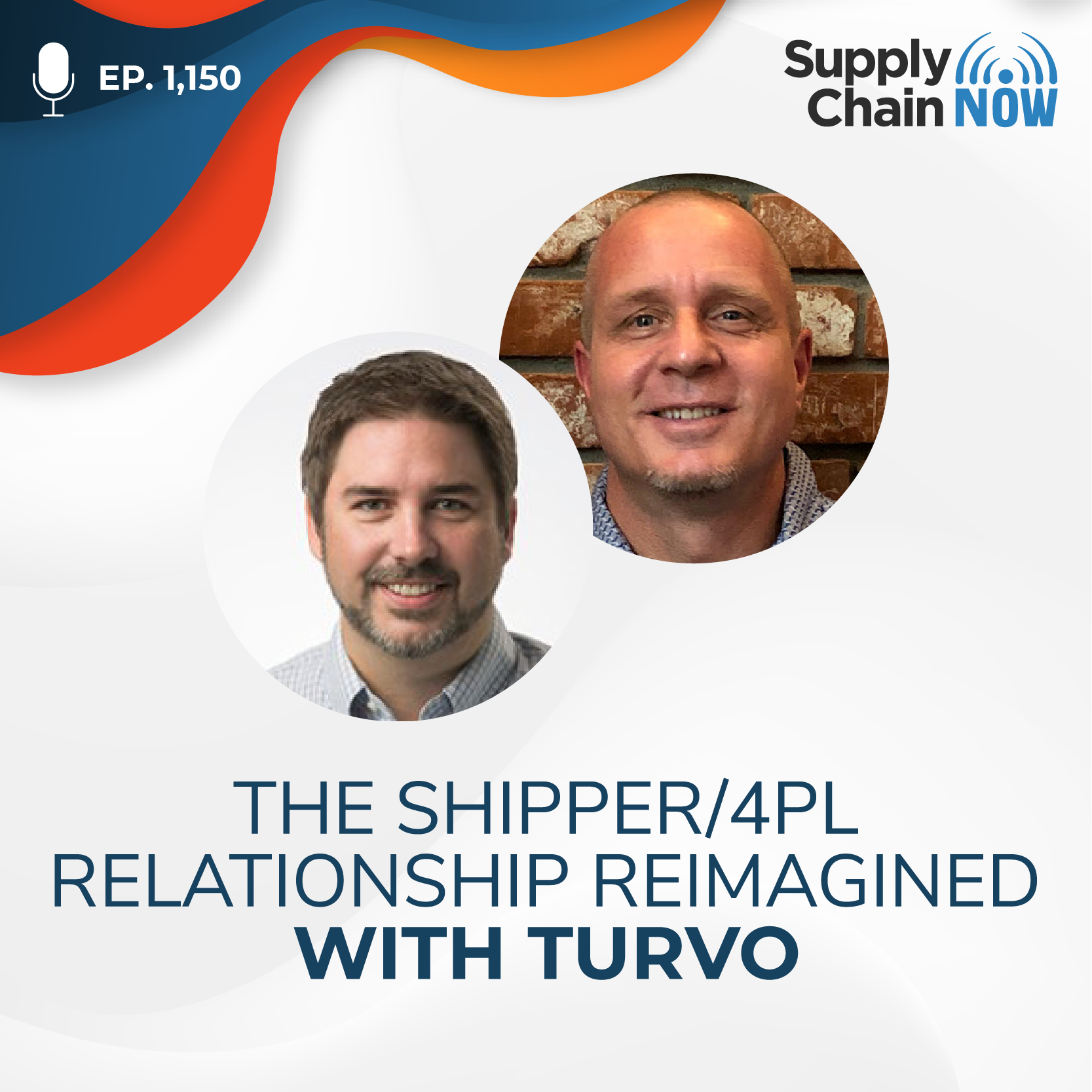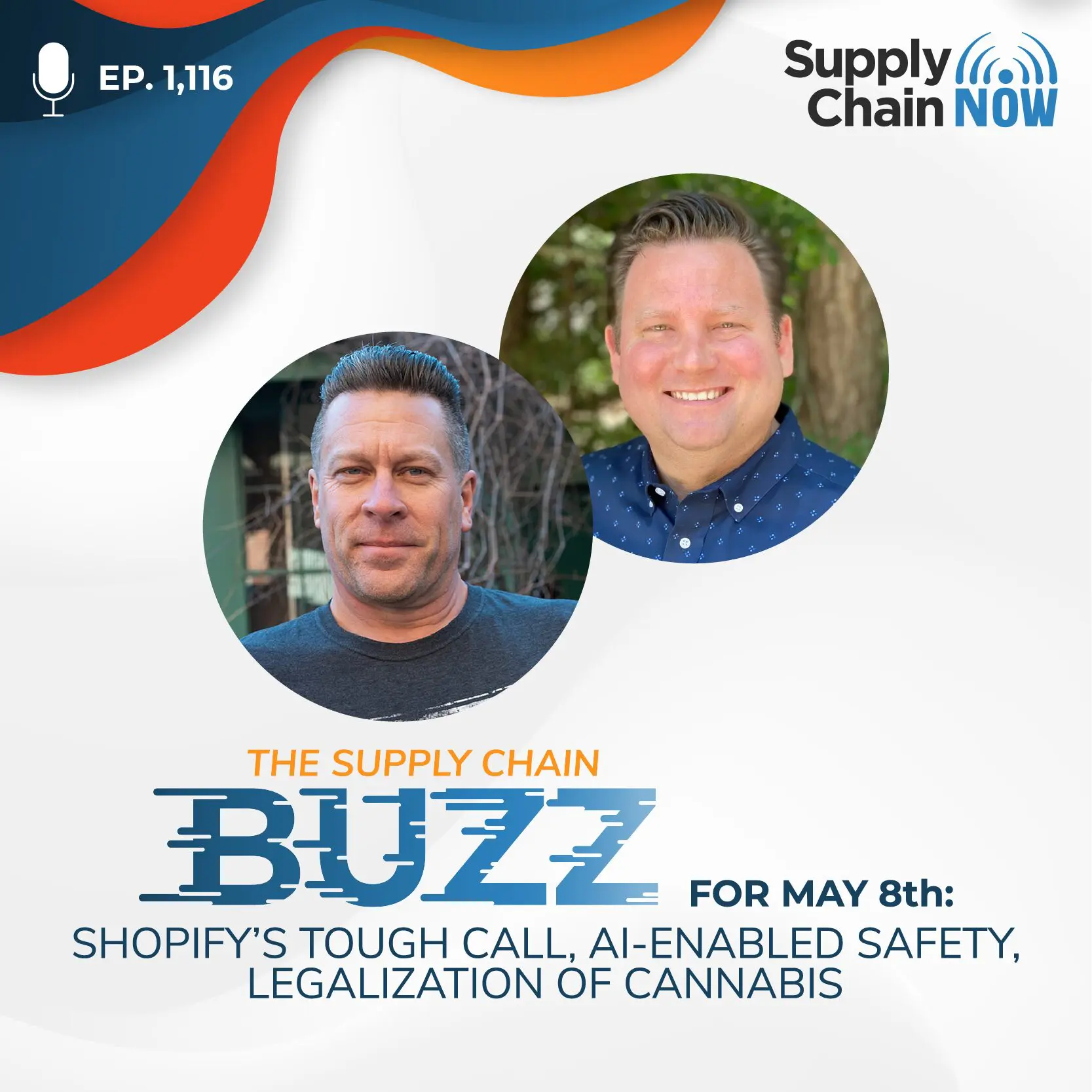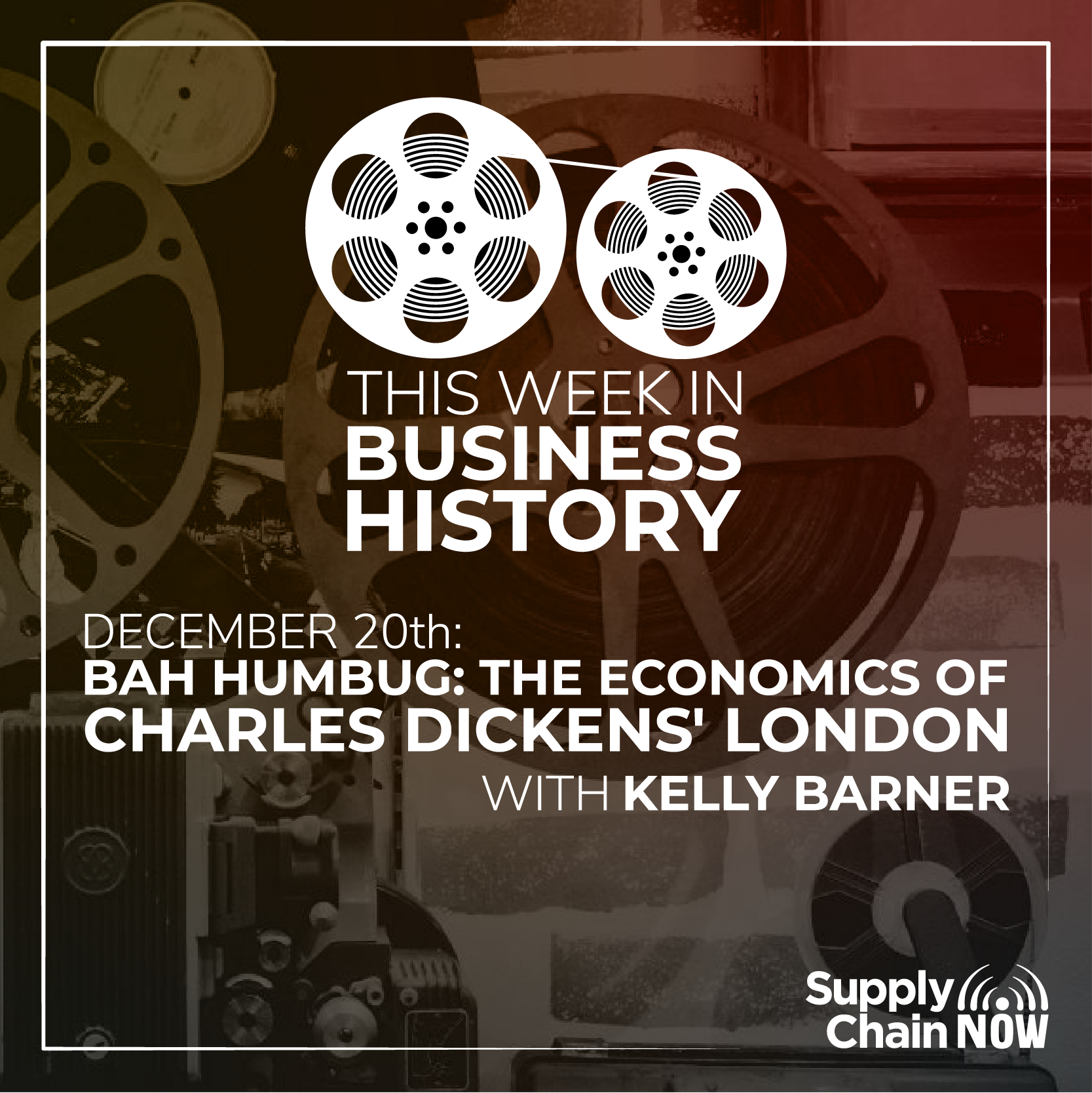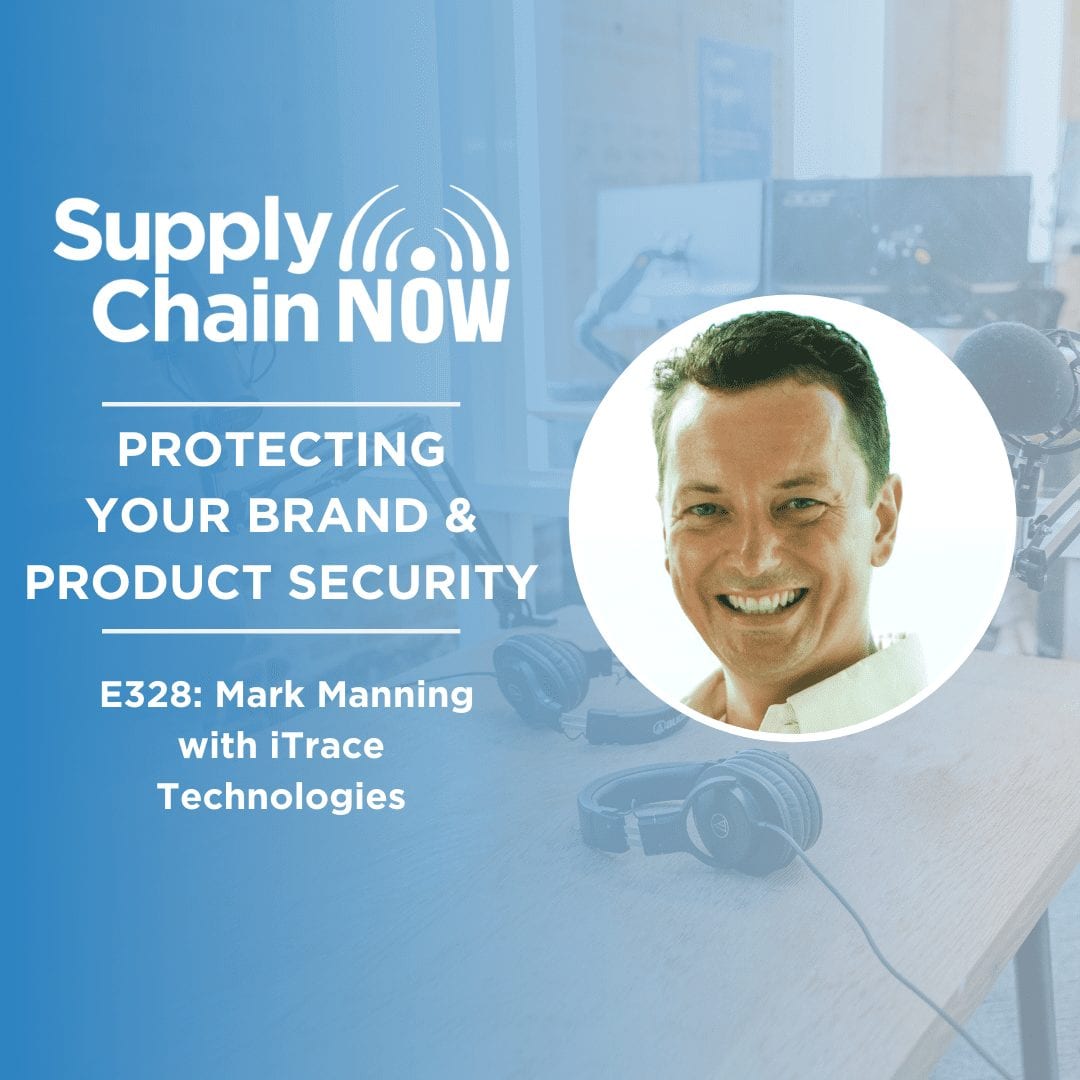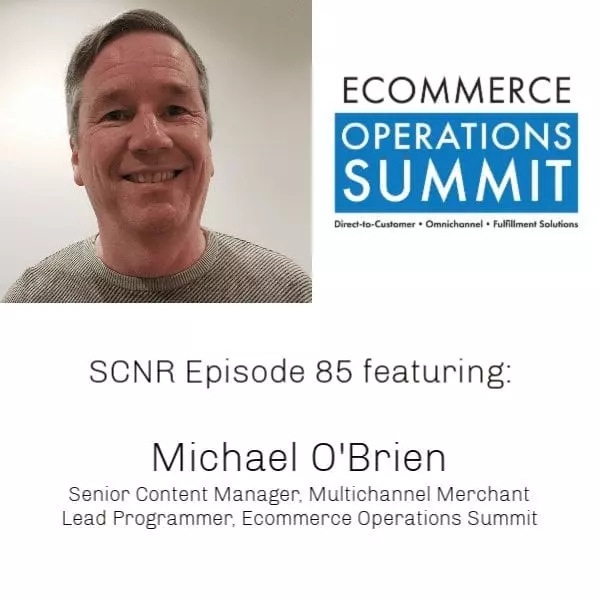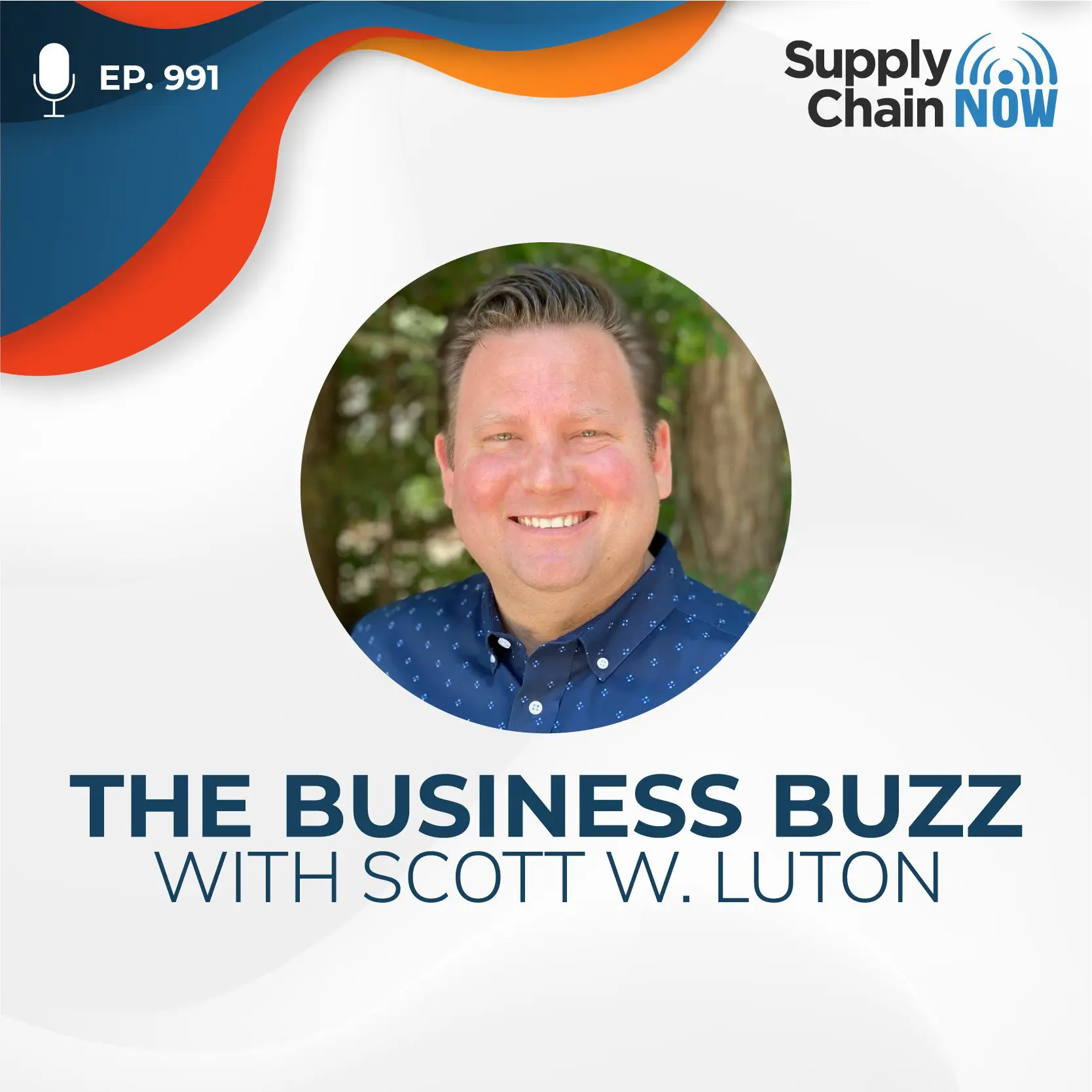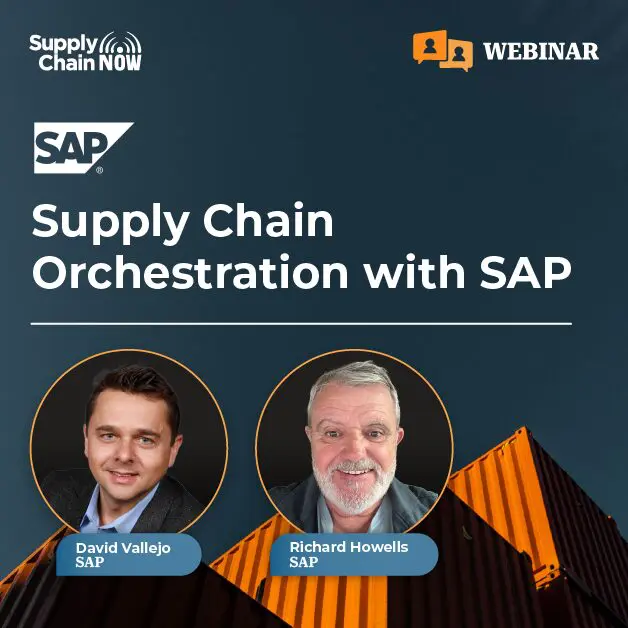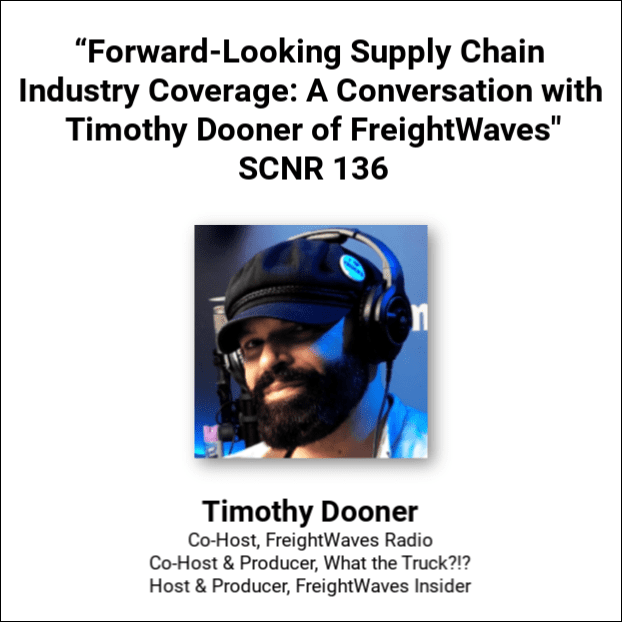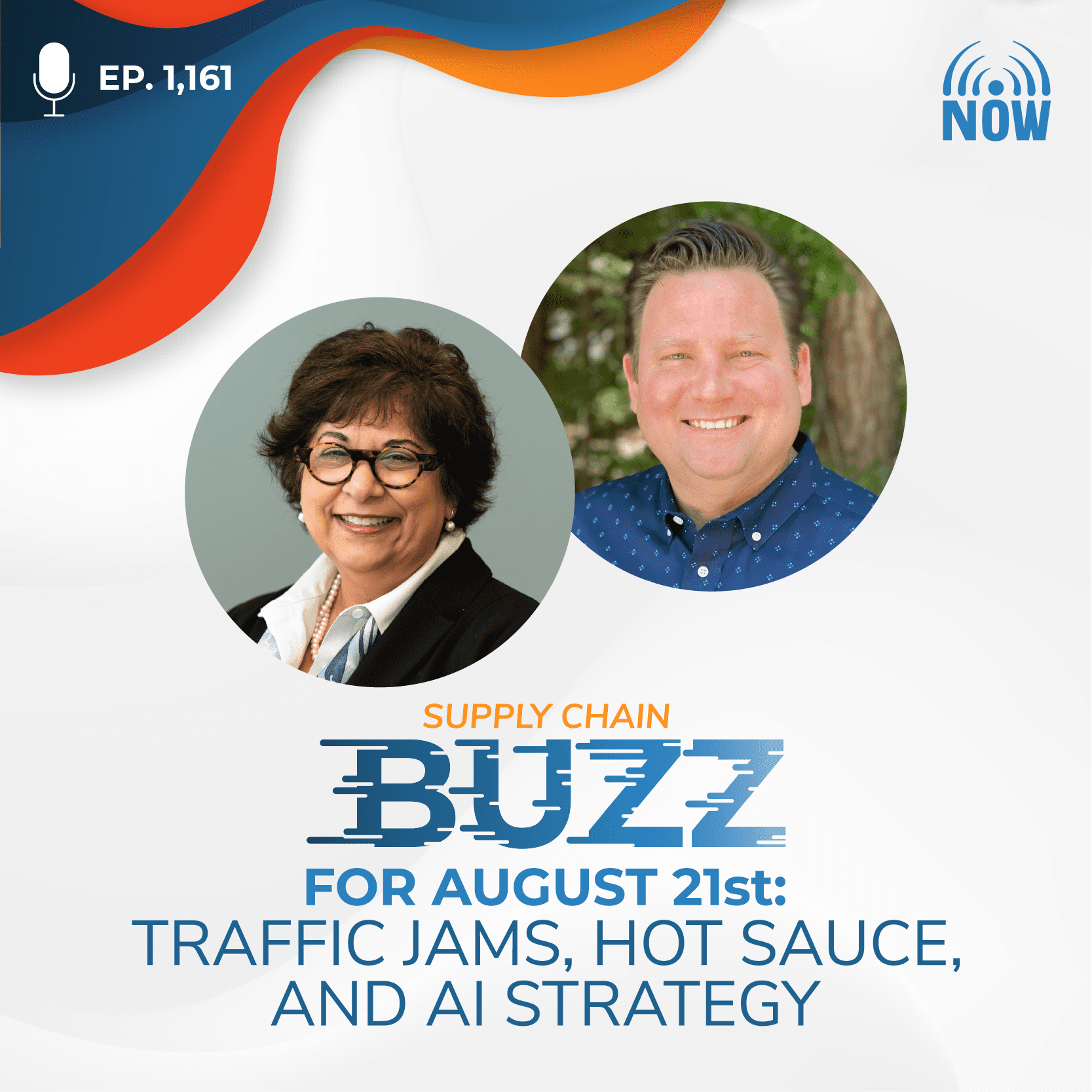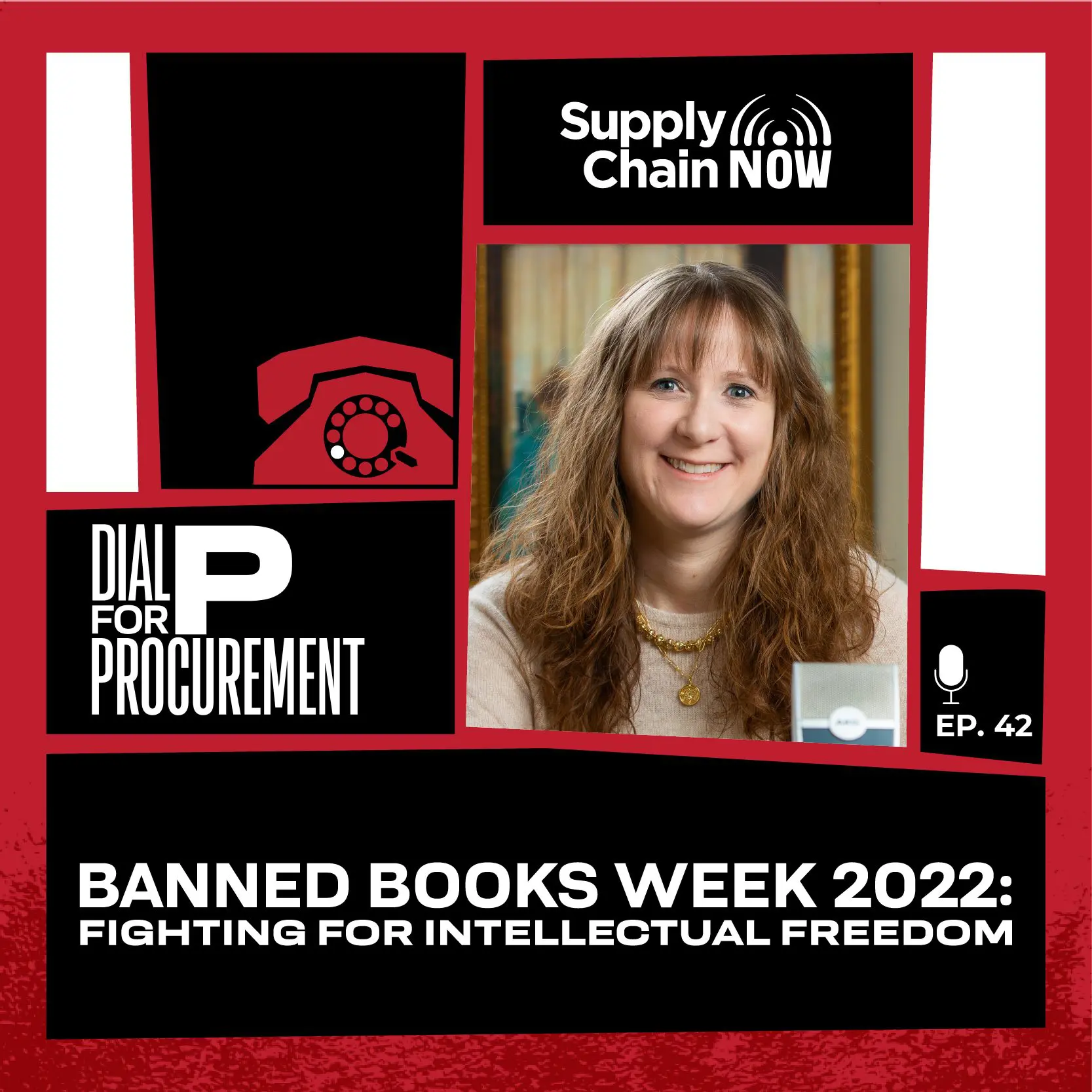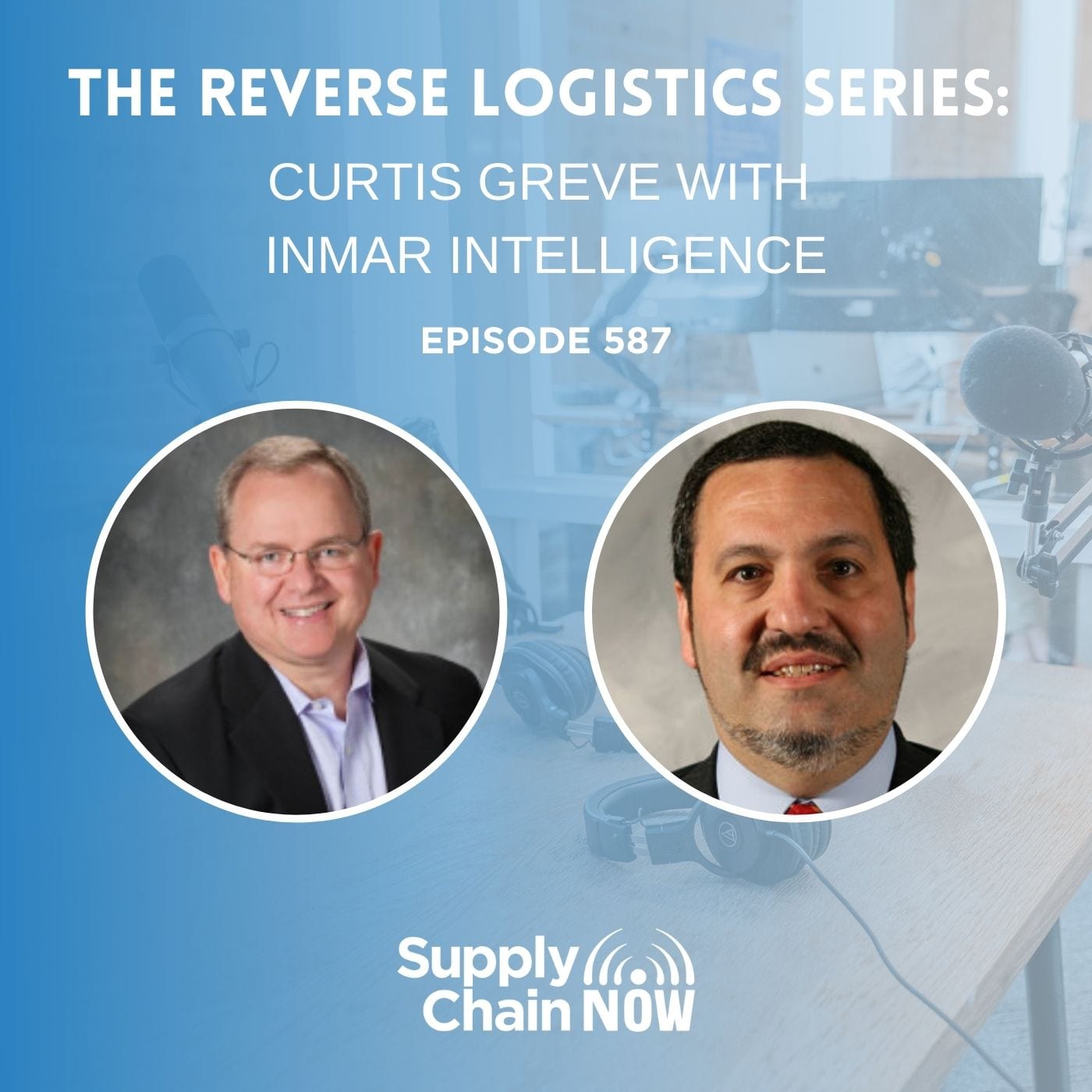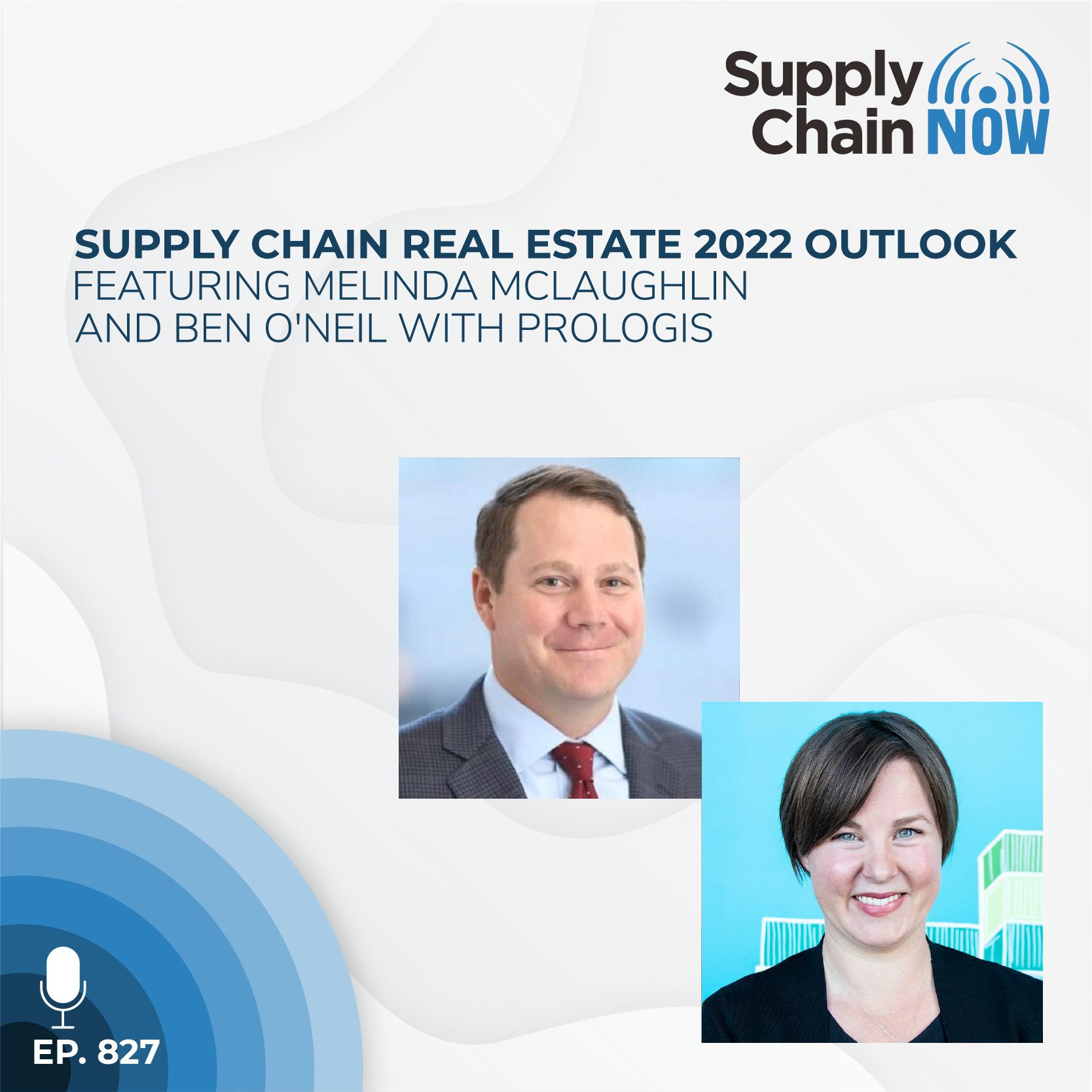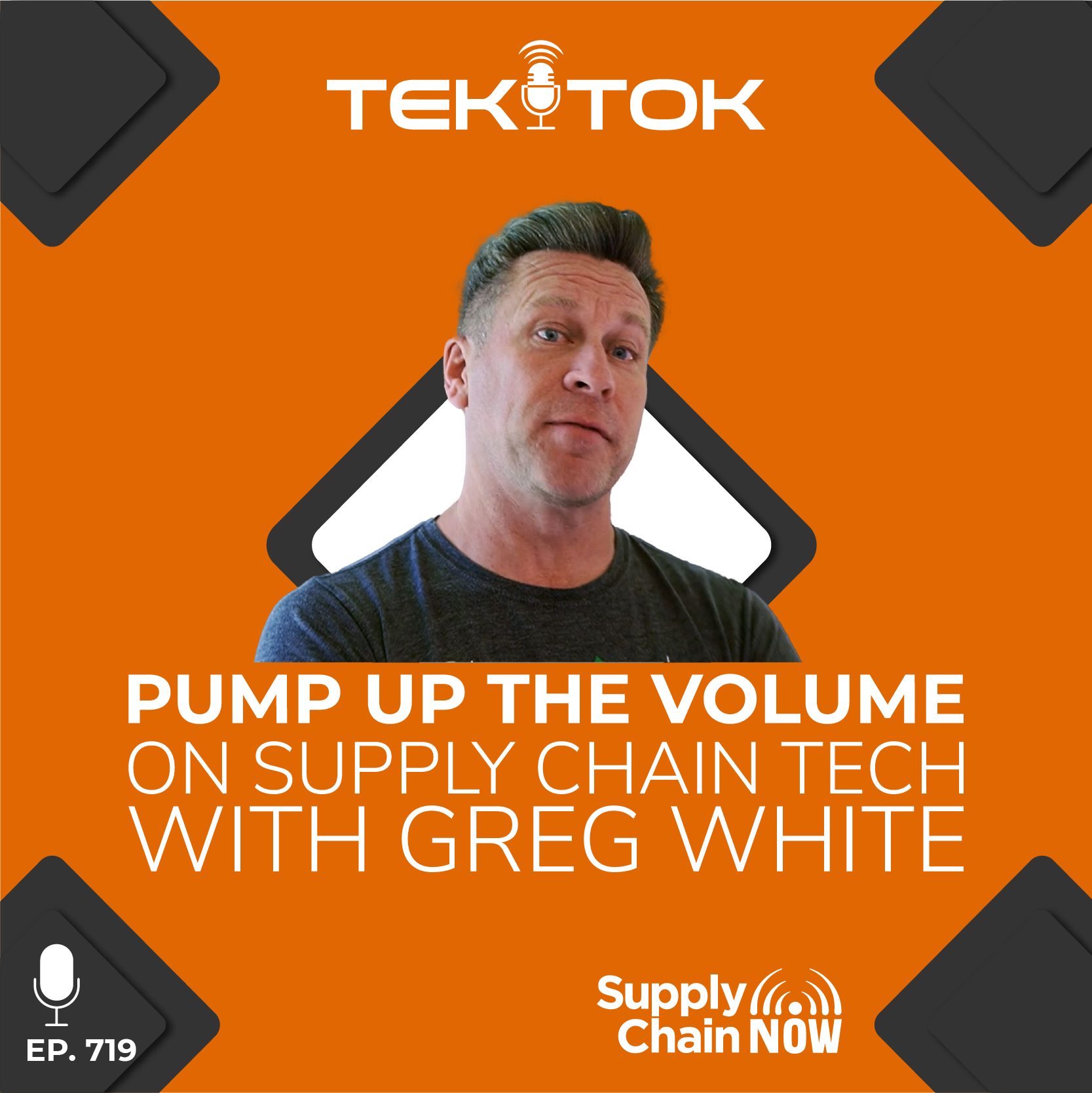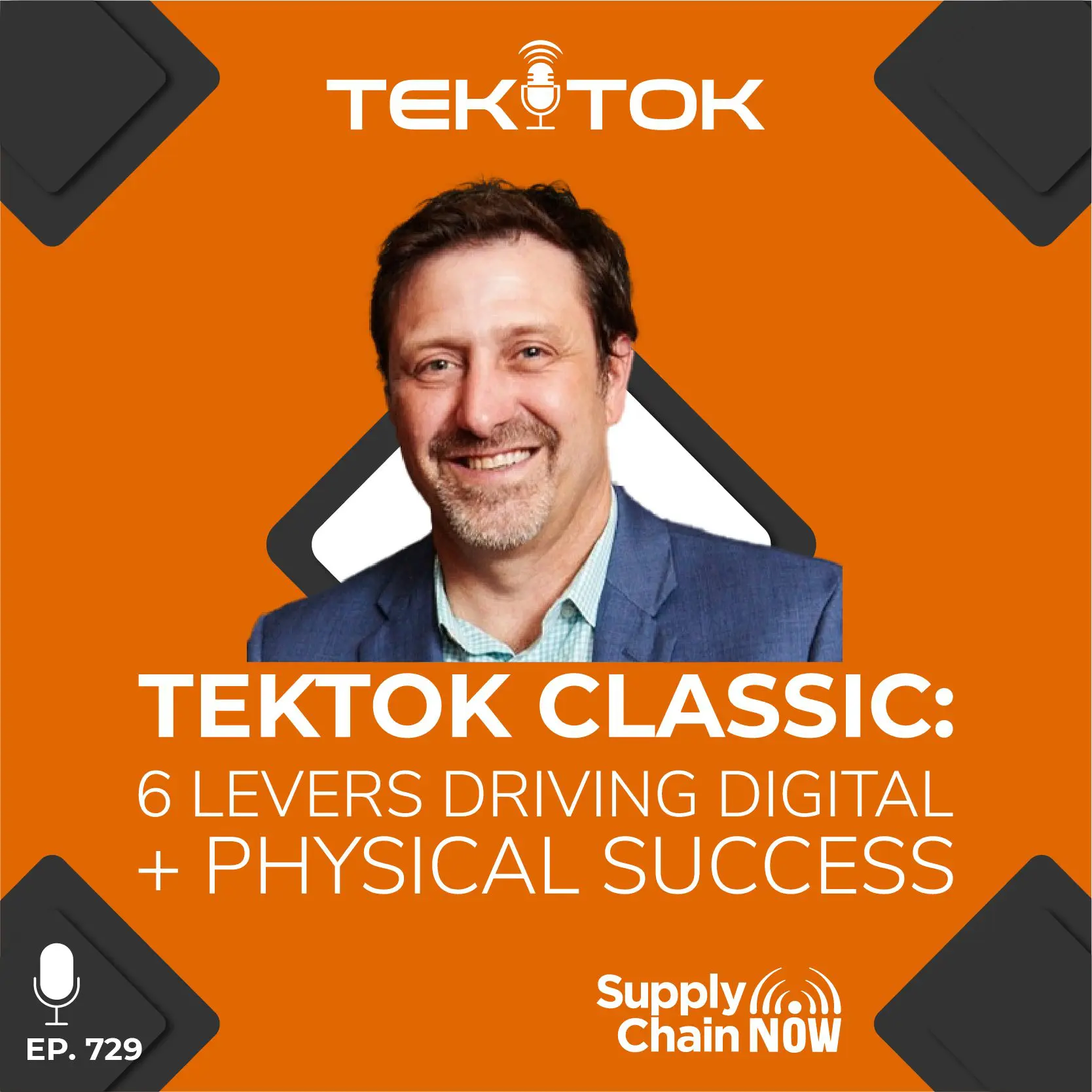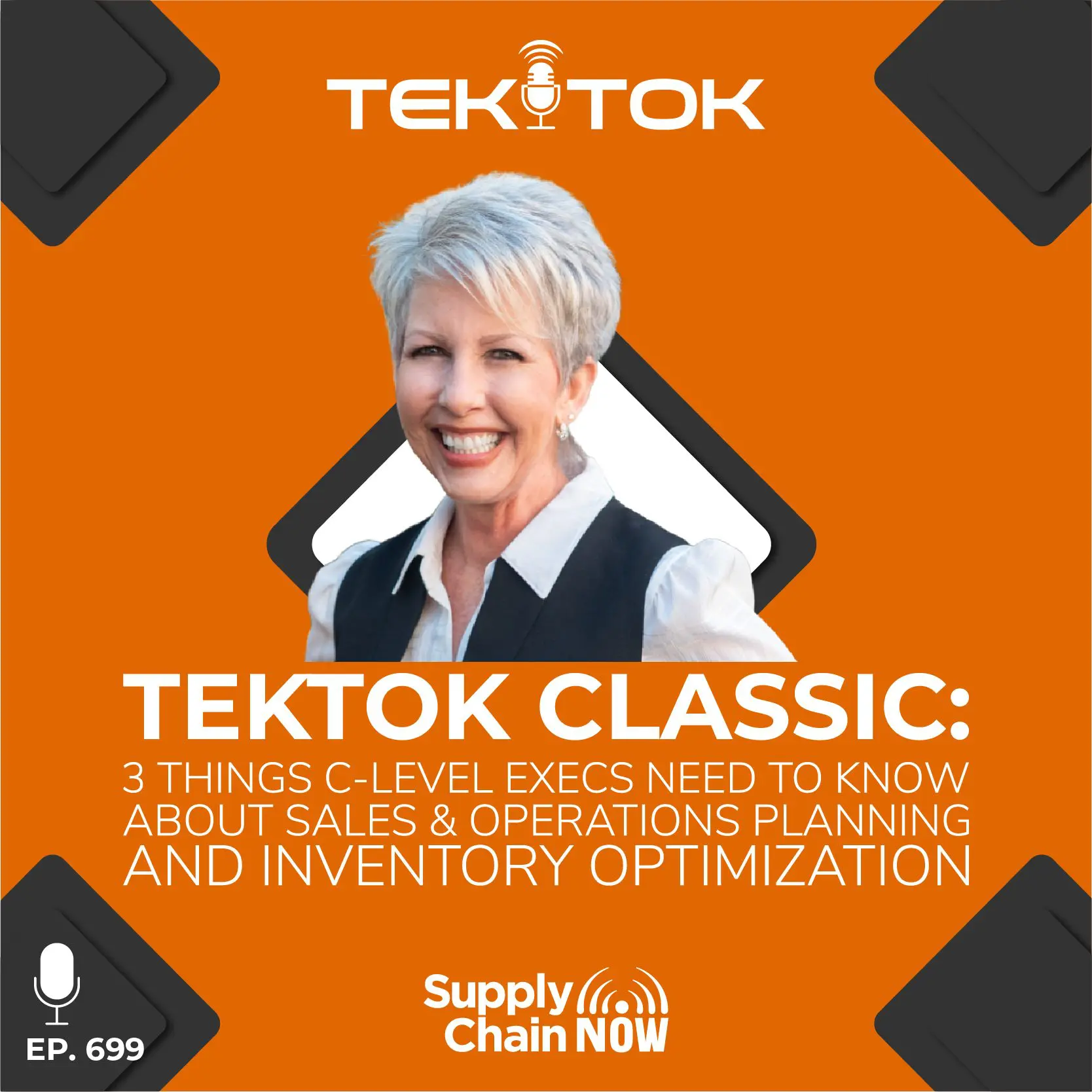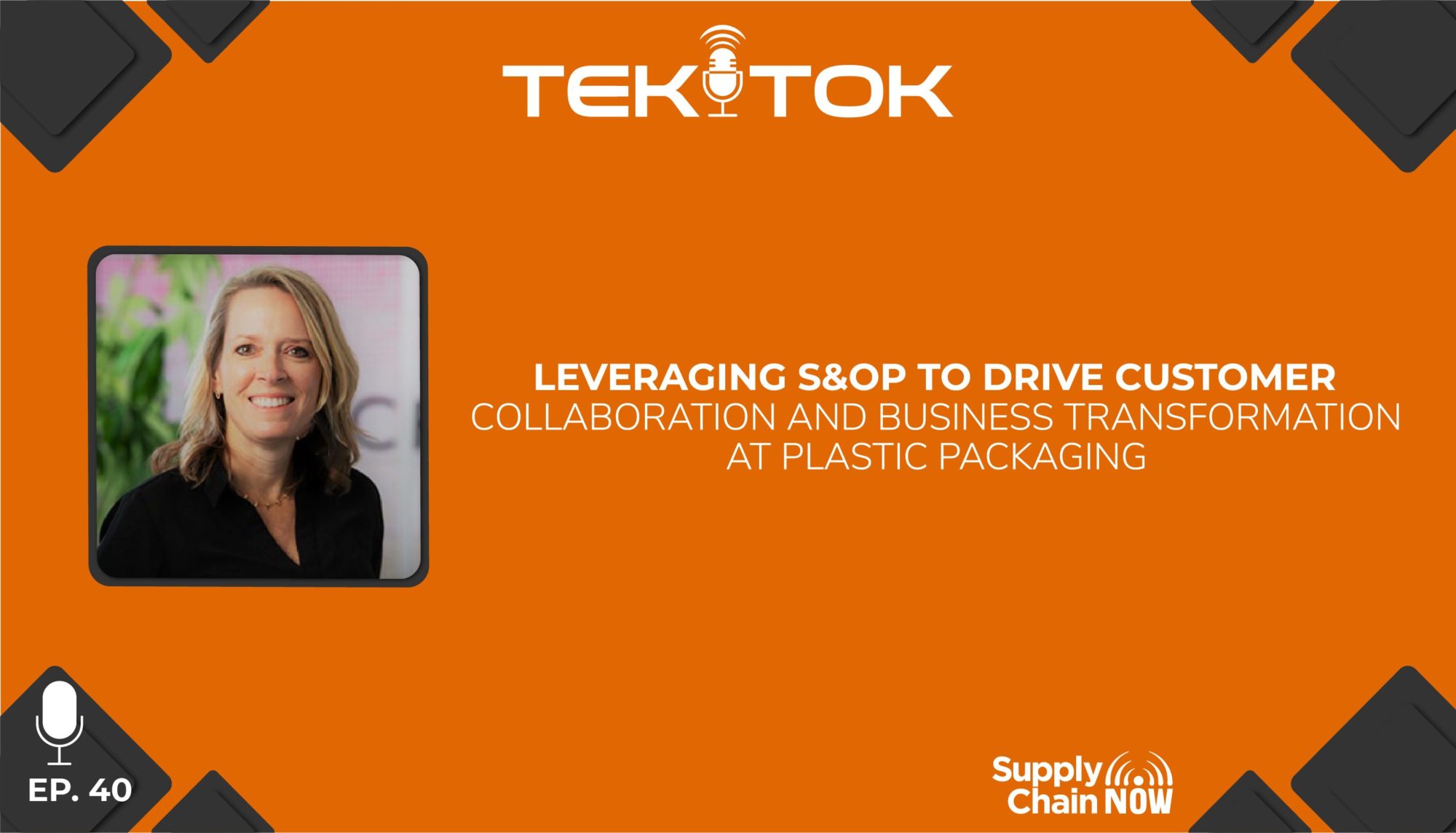
Episode Summary
In this episode, Chief Commercial Officer and S&OP expert Angie Taylor joins Karin to discuss how leveraging Sales & Operations Planning as the foundation for business transformation and customer collaboration is fueling more profitable growth at Plastic Packaging Technologies. Hear how Plastic Packaging quickly combined people, process, technology, and data to serve customers with new insights, greater agility, and increased visibility despite dramatic demand swings, product mix changes and shifts from retail stores to eCommerce.
Episode Transcript
Intro (00:00:01):
Welcome to TEKTOK, digital supply chain podcast, where we will help you eliminate the noise, and focus on the information and inspiration that you need to transform your business, impact, supply chain success, and enable you to replace risky inventory with valuable insights. Join your TEKTOK host, Karin Bursa, the 2020 Supply Chain Pro to Know of the Year. With more than 25 years of supply chain and technology expertise, and the scars to prove it, Karin has the heart of a teacher and has helped nearly 1,000 customers transform their businesses and tell their success stories. Join the conversation, share your insights, and learn how to harness technology innovations to drive tangible business results. Buckle up, it’s time for TEKTOK, powered by Supply Chain Now.
Karin Bursa (00:01:13):
Well, welcome back, supply chain movers and shakers. Karin Bursa here, and I am your host for TEKTOK, the digital supply chain podcast. I want to thank you for joining me today, because my commitment to you today is that you’re going to walk away with some fresh inspiration on how you can leverage your sales and operations planning process to drive growth, to increase customer collaboration, and to transform your business. Now, one of the fun parts of being a podcast host is the variety of experts that I have the opportunity to interview. It really has been awesome. And it is my pleasure today to introduce you to Angie Taylor. Angie is the Chief Commercial Officer and Vice President with plastic-packaging technologies, and I’ve had the opportunity to know and work with Angie since her time at Gear for Sports. And if you’re not familiar with Gear for Sports, they are a division of Haynesbrands. But this is where I first met Angie, and she was the director of sales, forecasting and planning.
Karin Bursa (00:02:21):
And then, I watched Angie build a top-notch planning team, and a really, really resilient sales and operations planning process from the ground up. And she did this with consumer products company, Vista Outdoor. Quite honestly, Angie has been delivering on her commitments for years, and one of the things that I have observed is that she’s got the ability to attract great talent, to develop them, and then to retain them and challenge them to do new and exciting things. And she has consistently brought together people, process, technology, and data to drive tangible results. So, let’s get started. Andy, thank you for being with us today.
Angie Taylor (00:03:15):
Well, thank you for inviting me. I’m really excited to be here and share any knowledge that might support the cause.
Karin Bursa (00:03:22):
Wow. So, let’s start, Angie, with just maybe a brief description of what Plastic Packaging Technologies does. And then, we’ll talk a little more about your role in the business, but let’s get a baseline on the company that you’re with today.
Angie Taylor (00:03:38):
Absolutely. So, yeah, I feel really blessed to be with Plastic Packaging, especially during the last couple years. But PPT has been around and in business for 45 years. And so, delivering on flexible packaging. And so, we like to say around here, really, our true mission is to just enrich people’s lives and the product they use with purposeful, powerful packaging. And so, we offer to the market a number of different platforms with Plastic Packaging, but always in the flexible space.
Karin Bursa (00:04:12):
So, flexible packaging. So, we’re talking about bags or pouches. I mean, what does that look like from a consumer perspective?
Angie Taylor (00:04:19):
Yeah, definitely. We offer a number of different formats, but always in flexibles, so we have—we like to say everything we deliver on as laminated roll stock or roll stock in general, and that can be transformed inside our business. We see ourselves as a top converter, so we make all types of different pouches from small side seal pouches to large format bags. And so, we transform that in our manufacturing plants. We’re in three different locations. And we are definitely in the heart of the pet and people, food industries. And so, we’re centralized in Columbus, Ohio, and Kansas City, and really deliver to a majority of the top CPGs in that space, where they might need food grade packaging. So, there’s a lot of technology that goes into the pouches and bags that we make.
Karin Bursa (00:05:14):
Okay. And you said something really important there, food grade packaging. So, those are some very specific requirements that come into play. So, when we think of your job, your role in the business, Chief Commercial Officer, how is that—I mean, describe to us what that encompasses, and how is that connected in supply chain?
Angie Taylor (00:05:40):
Yeah, definitely. So, we have a core value that is customer wins. And so, my job really is to help kind of rally the troops and help lead that philosophy. And so, my direct responsibility is to support our sales teams, our service teams, our onboarding teams, and supply chain teams, along with marketing. And so, we see ourselves as really championing, what does that customer need? How do we deliver our value to them from start to finish? And so, I partner strongly with our operations team to make sure that not only as we talk to customers are we designing for manufacturability, but we’re designing in a spot that we can help produce and deliver that value to the customer. So, I have a lot of different inner workings inside of our cross functional teams, but my real focus is to make sure customer wins. We say that externally and internally, we want to make sure as these products move through development, because everything we do is custom, we’re designing in mind of that product, the end product that’s going to go in our customer’s pouches or roll stock. And so, everything’s made to order. We’re working with them along that process to make sure that we’re delivering that value back to them. So, I get to help cheerlead the team along to make sure that happens.
Karin Bursa (00:07:03):
So, what I’m hearing, and I’m oversimplifying all the hard work you do, but what I’m hearing is you not only make the promises, but you deliver on the promises. Is that a fair statement?
Angie Taylor (00:07:14):
Absolutely. Absolutely. There would be a—for the last couple years, especially, you can make a ton of promises and never really deliver on it, and you’ll get caught in that.
Karin Bursa (00:07:25):
Yeah, exactly.
Angie Taylor (00:07:26):
And so, we always preach internally, it’s let’s make sure we’re committing to things that are a reality for our customer, because no one wants a commitment on a date or a product performance only to find out that that’s not really what they get at the end of the day. And some of these projects can be in works with customers for over a year as they’re developing the products that go into these pouches or into the roll stock that, ultimately, they have to design into a pouch. So, yeah, we have to really stand behind what we say and commit to.
Karin Bursa (00:08:01):
Yeah, absolutely. So, a couple of things you said, Angie, you talked about custom products for your customers. So, we are talking about a make-to-order environment, correct? Not a make-to-stock environment.
Angie Taylor (00:08:14):
Absolutely. Yeah. Everything we do from the film technology to the graphics, that’s where our power pull comes in. We want to make sure that these products have the shelf presence, because they do act as a silent salesman for most of our customers. And especially in the last couple years with this big push towards eCommerce, there’s not somebody in the store helping to sell it, so we need to make sure that from the way the package is designed, you can fit those beautiful graphics on there. You can tell the story of your product. I mean, everything’s food grade, you got to follow those rules. So, we have ingredient panels to pay close attention to. So, our printing and the capabilities we have there have to be topnotch to help deliver that value to the customer and safety with the food that’s ultimately going into that bag.
Karin Bursa (00:09:09):
Yeah, absolutely. So, one of the things I know has been on your agenda is to help Plastic Packaging Technology grow, and so that they can actually grow in a very profitable fashion as well. So, Angie, you and I have been together now in three different companies or have known each other while you’ve been at three different companies, and I have seen you implement a sales and operations planning process in some very different businesses. So, everything from consumer goods, which is make to stock, now, to the environment that you’re in with Plastic Packaging, which is make to order. Let’s talk for just a few minutes about the need for transformation, right? Some of your drivers for joining, what attracted you to the opportunity at Plastic Packaging, and then where sales and operations planning fit into that directive.
Angie Taylor (00:10:08):
Definitely. Well, I know we’ll say it a lot today, but it really does always start with the people, and the process, and then those tools. And so, I really wasn’t looking to make a move, but I met the people at Plastic Packaging, and the leadership team here, and the passion that they had for the industry, the business. And when you look at how important food security is in this country, making sure that these products get to shelf, and the last couple years, really been shined the light on that even more, it was the people that really attracted me and the passion for constantly evolving ourselves. We have core values that are really focused on this passionate persistence for results and making best better. And so, that, to me, was really critical, because as you know me, I love to come in and try to help transform a business to the next level.
Angie Taylor (00:11:07):
And I knew that the people here understood the importance of that. They had a great growth story. We have a great product, and it was really about coming over to think about what processes and what scale did we need via these processes, and there weren’t a lot of tools, and that’s something that I’ve prided myself in for the last few years, is really making sure that we got the people in play, the processes are working the way we want them, and installing tools for scalability. And we know the complexity in supply chain from figuring out, what does the customer really want, but how do you get that through your planning departments, and the supply chain, the raw materials, you know, working with your suppliers to make it happen? And in this environment, manufacturing that when it all comes together. So, I was really blessed to find a great environment where they embrace that and realized how critical it was to being able to grow.
Angie Taylor (00:12:09):
And I think most people in supply chain, we fundamentally understand it’s really hard to plan to do better, but educating people on why that’s so important. And forecast is never perfect, but it’s better to plan and try to make strides towards achieving a result, versus sitting back and just letting whatever happens. Usually, whatever happens isn’t the thing you want to happen, so it’s been an exciting time to really come in, embrace that. I’ve almost been here five years. And so, I’ve had the chance to bring in some really top talent, get our processes where we wanted them. And obviously, it’s always evolving. We learn a lot every day. As we grow the business, you need different tools, different processes, different levels of complexity, so it’s an exciting journey that we’re on, for sure.
Karin Bursa (00:13:03):
Yeah. And I think it’s important, maybe, that we understand that the goal here, when you came into Plastic Packaging, was not necessarily to transform supply chain operations. It was to help transform the business, or help to fuel, if you will, the business growth plan that was in place. And so, supply chain became an enabler in that mix. And I think that may sound like a subtle difference, but I think it’s really important, because you had the support of the entire executive team to put the process in place, bring in some great resources, and then start to serve customers better. Is that a fair statement?
Angie Taylor (00:13:55):
Yeah, definitely. And I think a big piece of it was that I had the background of that education, and having proved myself over the years of what I was capable of, we needed to do a lot of education. And to have—I’m sure that’s why I’m here, because to have that experience, they wanted somebody who could speak the reality of what is happening. This isn’t unique to Plastic Packaging. And so, like you mentioned, having that experience in different size businesses, different products, they needed someone who could come in and really help to start educating. And educating, not only internally what was needed or maybe where we headed, but also to educate our customers on the importance of it, and how them partnering with us was going to make a huge difference in the way that we service them in their, I guess, transparency of data that we shared, in the investments that we would make that they would actually see results from those as well. Because sometimes, when you’re doing these processes, you start asking your customers for different things that they weren’t used to, and they’re like, oh, why, why are we having this conversation, or what’s this new cadence on sharing information? So, there was a lot of bringing in my expertise from past roles and really sharing those experiences, and how we could help transform and improve their service level, their lives in the chaos of supply chain in general. So, yeah.
Karin Bursa (00:15:32):
Yeah. And I think that’s important, because when we start talking about planning with our customers and our suppliers, that fundamentally means we need a plan that gives us that visibility. So, I need a customer-level forecast. I need to understand very specifically what that forecast looks like for that customer or for that channel. And so, I’m assuming as you put together your S&OP process, talk to us just a little bit about that, because that has to be a foundation to actually be able to confidently collaborate and make those commitments with your customers.
Angie Taylor (00:16:11):
Yeah, definitely. So, we are about three years into the journey, and we use some very incremental like step plans, because we knew if we didn’t do it in a successful manner, like start with our top customers, the ones that could top in terms of volume, and that could really move the needle on the business, and we knew we had enough sophistication as well to be able to have those conversations. And so, we rolled out slowly, not only the internal education on what was important, what did the monthly cadence look like? How did we step through demand planning? And then, how are we going to come together and look at supply, then how are we going to transfer that to operations and look at constraints? So, pretty much, every three to six months, we would kind of add a little bit of maturity as people marinated on those topics and started to see how that evolved. So, I think that’s one really important step for people who are getting started. It’s, one, do a lot of education, not only internally, but externally, and then give yourself some space to add as you go. And it really is a journey, and we use that language a lot, because it’s not something you turn on one month, and you’re like, oh, well, everything’s working great. It’s slow, and you have to give people time to start to work through some of these processes.
Karin Bursa (00:17:43):
Oh, totally agree. I think perfection is the enemy of progress, right? And I think taking that type of incremental improvement over time is important. I also think that, sometimes, we overestimate the capabilities of our customers in that process, right? So, I know that there have been situations where your team has actually been able to share some new and interesting insights with your customers, so tell me a little bit about that.
Angie Taylor (00:18:15):
Yeah, absolutely. Our customer mix is made up of a lot of different diverse businesses, diverse business size, complexity, but you—and I’m sure people who are listening won’t be as amazed as sometimes I am, but you can be a billion-dollar company and not have a very sophisticated S&OP process, or you can be a 200-million-dollar company and know every detail you need to know. So, we always find that we have to tailor it a little bit to the customer and the customer group. But what I love about our team, because we have a lot of experts internally, they’ve understood that to make this process a win-win with the customers, they have to bring value to it. So, they analyze their information and look for trends, and we’ve been really fortunate to invest in really great supply chain tools. And so, as we come into those meetings with our customers, demand consensus, or the customers on a quarterly review, we have the data behind it, and our team will analyze it, and say, hey, we’re seeing that this group skews is not performing like it did a year ago, or, hey, you had a lot of version up in your skew and this one—this new skew’s not performing as well as the old skew.
Angie Taylor (00:19:33):
And so, by bringing that, it’s almost a checks and balance more, especially with customers who don’t have those insights, they’ll take the data away, and say, oh, my gosh, yeah, you’re right, look what—you called this out, maybe we need to make an adjustment in our film stocking program or our raw material stocking programs, so it’s been really fun to see that. And I’ve seen that happen over the years at a lot of different companies, and customers really value that, because a lot of times, they are pulled between multiple jobs or maybe they just have a really big book of business, and they’re not able to get in and analyze the data. And so, I think that’s how we really build strong trust and rapport with our customers, is that we are always looking for ways to help them solve a problem, especially when before it happens, so they don’t get overstocked or maybe they’re just carrying a little bit too much inventory or maybe not enough. And so, we like to focus on that and try to find little nuggets to help them see the value in the process.
Karin Bursa (00:20:35):
So, let’s talk about that for just a minute. So, obviously, the pandemic occurred, and we’re still working with some of the repercussions as business in some areas returns to normal, and then other areas are probably permanently changed as far as the channels that it will go through, but through this juncture, I know Plastic Packaging has actually seen growth in the business. So, congratulations, first of all, on that. I know that that is hard, warm growth, because your customers had some pretty dramatic market changes, right?
Angie Taylor (00:21:15):
Yeah.
Karin Bursa (00:21:16):
So, it could be that they were accustomed to selling through retail locations, and those were not just big shipments, large quantities, but maybe the packaging was different as well. So, let’s talk just a minute about how this customer collaboration occurs and how your team was able to help make a transition in the product mix from maybe large packaging to small packaging that would be delivered through ecommerce channels. What did that look like, and how did your S&OP process and your collaboration with customers, how did that help, because you were able to bring some good data to the conversation to make some better decisions?
Angie Taylor (00:22:01):
Yeah, definitely. I mean, I’m super excited, first of all, that we started this journey ahead of the COVID pandemic, because I couldn’t even imagine. For some, I know they were just scrambling like crazy. We were about a year in to our journey, and so we started seeing, really quickly, some of those changes. The eCommerce side, we’re also very fortunate that we’re in flexible packaging, because I think the number one thing people learned really quickly is when you can’t go shop for it at retail and it comes to you on your front door, a lot of things break when they’re hard, rigid containers. And so, we started to see a lot of shift to flexible packaging that would help support that type of delivery method. So, that’s been really interesting for the industry of flexible packaging, and that trend will definitely continue now, because consumers have witnessed that, and seen, even through the value chain, how much savings there are in shipping flexible packaging over rigid containers, and just the weight of those or the breakage that they’ve seen.
Angie Taylor (00:23:12):
On top of that, our customers, we have a heavy customer base in the pet side, and of course, everyone adopted a pet and everybody had a new coworker at home. And so, we saw a lot of snacking, and treats, and changes in dog sizes even, people adopting like smaller pets. And so, the packaging, them understanding like, what are they going to feed their pets? So, the packaging itself, where customers used to, they go to the retail store and they would get the 30, 40, 50-pound dog food, dry kibble, they’d bring that home, not as easy to ship anymore. At that point, people hadn’t figured all that out with the subscription services, and so you were starting to see smaller packaging. One thing our team does a really great job of is we call it our key account management team, and they have a quarterly business review.
Angie Taylor (00:24:10):
And so, with them and the demand planning team, they would pull these data points into these topics of discussion during those meetings. And so, we could really ask transparent questions around the trends we were seeing. And at the same time, the CPG companies were realizing all these quick shifts in trends. And so, it was really fun to see the move of, hey guys, we’re seeing this trend, they’re, yeah, we’re seeing it, too, or vice versa. And how is that going to shift volume on the bags that we’re producing? Because for us, those are on completely different pieces of equipment, too. And so, then we had to translate that into capacity modeling, what that looked like for labor. And obviously, material can be different when you have a large bag, versus a smaller bag, and zippers, and closures, and all that fun stuff.
Angie Taylor (00:25:07):
So, the process of really staying in front of the customer and using data trends and insights from the industry to help quickly move those products around was probably the most exciting thing for our teams internally that we felt like experts in that, too. And with those meetings, we would share that knowledge across the base of industries, too. So, maybe we have a team that’s working on one customer and another team that’s working on a different customer. We call it our pet pod. And so, the pet pod would get together, and share trends, and say, oh, this is what we’re seeing in the market, or the people pod, they would do the same thing. And so, it’s all about just really sharing information and trying to move as quickly as you can.
Karin Bursa (00:25:56):
Yeah. I mean, those are some great examples. I mean, you said so many good things in there. I want to come back on a couple of topics. First of all, we recognize product mix change substantially. And product mix for your customers is product mix for your business as well. Right down to, you mentioned the ingredient labels before. So, I know that there have also been some significant constraints in certain product that goes into the packaging, right? So, there have been anything from chicken constraints and some markets to other protein constraints as well. So, I’m imagining that all of those ingredient labels have to be adjusted to reflect whatever is actually in the pouch or in the bag for customers. So, as that market condition changed, you were able to help your customers respond to those changes. Is that correct?
Angie Taylor (00:26:50):
Yeah, absolutely. We have a fabulous graphics pre-media team here. We like to call it a three-by-three relationship, so a lot of our graphics teams are directly tied into the customer and can see those shifts happening. We call it version up around here. So, there’s a lot of different versions as they were running into supply chain issues with raw ingredients, maybe they even had to move locations because of a COVID outbreak or something like that. And so, you always have to have like points of origin and follow all of those rules that are laid out on ingredient panels. So, it was a bit of a wild ride. We’re able to track some of that changeover, because it did really impact our graphics team and items setup teams, and making sure that we were matching up the right art to the new product. But yeah, lot of crazy changes, I guess, for the whole industry.
Karin Bursa (00:27:50):
Yeah. Lots of changes, lots of responses to changes in the market. So, you started alluding to this already, but when we bring it back to this discussion around sales and operations planning, right? So, we’ve established that plastic packaging is a make-to-order business. So, visibility of future demand is going to help us align capacity and production capabilities. And then, Angie, we also mentioned that plastic packaging technologies has seen some pretty significant growth. So, I’m thinking that you’ve had to bring on additional production capacity. So, as a business executive looking at, when do we make those investments, there’s got to be a lead time associated with being able to bring up or activate a new production line. Give us a point of view in how sales and operations planning has helped you and the other members of the executive team make those capital investment decisions.
Angie Taylor (00:28:54):
Yeah, definitely. Well, our vice president of operations and I are BFFs over the last three years, because I couldn’t do anything without him, and he looks to us to help him stay out of trouble as well. And so, we do have a monthly cadence. On the third week of every month, we get together as an executive team and we talk about all the supply signals that are coming at us. He’s got a really good grasp of, what’s his labor plan look like? What are the lead times on equipment? And we really just come together and marry that up. We do it always for budgeting the year prior, but the supply chain’s been impacted, too, when you talk about equipment buying, with their labor issues, so we’ve had to take even a more proactive look. With the growth that we’ve been seeing, we’ve had to plan even further out.
Angie Taylor (00:29:48):
And so, we want to make sure with the demand signals we’re seeing from our customers, the product mix is so critical, because there’s a lot of people moving into sustainable products. There can be new equipment that really helps to run that more efficiently. And we have grown substantially. In the last couple years, we’ve added a whole new plant, our center of excellence for pouching, we’ve added all kinds of new equipment there to really get prepared for this whole sustainability initiative with all the big, large CPGs are pushing towards some deadline. So, yeah, we really stick to that monthly process. Obviously, things—we have a big win in sales, and say, this is going to directly impact labor, that we’ve budgeted on one asset, I mean, he and I will get together and just start talking about what do we need to do next, but we really make it an important point that all of our directors and our leadership team, executive leadership team is together on that third Monday of the month, and we talk through the next 12 months. And really, we do strategic planning for three years, but talk more directly about what we’re seeing as the change in our customer’s portfolios and how that directly will impact not only equipment capacity, but our labor capacity, for sure.
Karin Bursa (00:31:09):
Yeah. Those are great points. Very valuable. Now, Angie, another thing that you mentioned is, and I know you do this by second nature, but I think it’s important for our listeners to understand this ongoing education effort, right?
Angie Taylor (00:31:24):
Yeah.
Karin Bursa (00:31:25):
How do we actually get long-term traction with sales and operations planning? As an expert in this particular area or business process, I assume everybody’s doing it, but I know the reality is they’re not doing it. And those that are doing it, at least half of them are not doing it well, and it doesn’t have the executive level support it needs. Now, I know that’s not the case at plastic packaging, but how do you keep that momentum going, especially as personnel changes, either at your customers that you’ve got the collaborative relationships with, or as your team continues to grow, what are a couple of nuggets that our listeners might be able to take away in how they can keep reinforcing, if you will, the importance of the process, but also maybe kind of inching forward on their maturity spectrum?
Angie Taylor (00:32:23):
I think over the years as I look back, and think about, okay, when were we most successful in getting it implemented in the timeframe we wanted or getting the investments we wanted, because in some cases, I mean, there’s different tiers of affordability. You can get great people, you can get great tools, you can invest in new processes, but I think it does boil down to just showing the wins along the way and showing the value, because it’s absolutely 100% that this process is going to deliver better value to your customers in regards to on-time delivery, having them look at even, if you’re business-to-business and there are chargebacks, they’re seeing that retailers are out of stocks, we know that they’re getting hit by the big guys of the world when those shelves are empty, finding metrics that you can start to really evaluate and show that progressive improvement on.
Angie Taylor (00:33:21):
These processes, I have never run into an instance where they do not pay for themselves. If it’s not about reduced inventory that’s aged or about being able to deliver a bigger bottom line and a bigger top line, you definitely also see these intangible benefits with just how much more calm your workforce is, and they feel like they have the insights that they need to do their jobs better. And they know that they’re in lockstep with each other, and I think that, to me, is one of the biggest things I tend to see between customers or just things in my past experience, people are always kind of shocked, like how are you in the VP of ops like hanging out and golfing? It’s like because we’re a team, we’re in lockstep with each other.
Karin Bursa (00:34:10):
And you’re in it together, yeah.
Angie Taylor (00:34:12):
Yeah. We know that it’s about delivering to the customer at the end of the day, and if we’re not talking to each other, it’s never going to happen. And so, I think it’s just showing those little wins and continuing to educate people. If one thing really good, I think, came out of the last three years, it is that supply chain is almost a household name. I hear people all the time just blaming random things on supply chain, or, oh, well, supply chain, fix this, or whatever, I love that, because I’m like, okay, I feel like we’ve finally gotten the recognition that we need. Maybe it was negative in some regards, but people start to understand, wow, supply chain’s really important and we should make more investments in that.
Karin Bursa (00:34:55):
Yeah. I completely agree. I have said time and time again, supply chain has now taken center stage and has a seat at the table. And I think that there is a deeper appreciation for how it is more than a cost center, that it becomes this strategic lever point. You’ve given us a couple of really specific examples here. When you started this initiative, Angie, I mean, you were starting from ground zero for plastic packaging, so you had to look at your business process, your team, the tools, even access to the data, that can be really overwhelming, help us understand, where did you start? Like what was the foundation of the foundation, if you will, in getting this underway, because you’ve come a long way in a very short period of time?
Angie Taylor (00:35:51):
Yeah. I spend a lot of time with people really talking through, where were the pain points? I think understanding people’s operating reality and what’s happening, not only the voice of the customer, and how are we taking care of them? But also, internally, what’s going well, what’s not going well? And you’re exactly right, what information do we have? Because there’s a lot of feelings that come into supply chain, whether it’s going well, it’s not going well, we’re also blessed with an awesome VP of technology, and he is a master genius at like, hey, if I need this data point, because I’m trying to prove a theory out to myself, like is this working or this isn’t working, you got to have the information, really. And, too, that helps you set your baseline for improvement, because you can tell right away, if your service level is at 50%, your on-time delivery is never happening, you know kind of where you need to start knocking things off that I am very focused on.
Angie Taylor (00:36:54):
It’s got to start with people, because they’re going to help drive all the processes. If you’re going to implement new tools, you got to have great people to be able to do it. So, really looking at the people and getting a sense for what was going on, and then focusing on those processes, because a lot of people can put a tool in, and then think they’re going to build process if the tool doesn’t support the processes of your business, because they’re all different, right? How we transform information from our customer to our operations team is much different than it was at all the other companies I’ve been at. So, we needed to make sure that we understood what processes would be successful, started playing those out and tinkering with them, and then came back and put a tool set in that really supported that in an automated fashion, and gave those top players onto my team the ability to just go wild with it and really come up with some innovative ways to help solve problems a lot quicker.
Karin Bursa (00:37:52):
Great. So, you started with people, making sure you had the right team, and then established the process or at least the groundwork for the process that you were developing, and then you looked at tools or technology to support that.
Angie Taylor (00:38:09):
Absolutely.
Karin Bursa (00:38:10):
In that sequence. And I would say that that’s important, because simply investing in a digital supply chain planning solution without the right people or a good process is kind of putting the cart before the horse for many companies, especially a company that’s growing the way Plastic Packaging is growing. And you’re always going to need to serve the needs today as well as plan for the needs tomorrow. So, I think that that path, if you will, is important. Tell me, Angie, you started this customer collaboration initiative, which is, I want to say it’s innovative, but the reality is we’ve talked about collaborative planning, forecasting, and replenishment, CPFR for years, for almost 20 years, to be quite honest with you, but very few companies have made this work. Now, Plastic Packaging has had some really good collaborative relationships with your top customers. First of all, how did you pick those customers? Were those based off of volume or were they based off of being some of the more challenging customers? How do you decide who to pursue a collaborative relationship with?
Angie Taylor (00:39:34):
Yeah. So, it definitely is a mix. We look at strategy. We look at the relationships that we have in some of these brands, and some of them are not the biggest in the world, but we know that they have a passion towards flexibles and what we’re doing, and they’re innovative, so we like to learn from them, too, and know what’s going on. When we have pain points, we’re seeing a ton of expedited orders or we’re seeing service levels that aren’t working, they typically come on the radar to be our friend in demand consensus. And so, we want to make sure that we can help solve those problems externally and internally, and it helped, really, I think, build the trust of our internal teams, too. There’s nothing worse than having a customer relationship, where 50% of the time, it’s an expedite, the sky is always falling.
Angie Taylor (00:40:32):
So, we know that there’s something going on in the planning process or an interpretation of needs that is just not working. And so, typically, those become top candidates. And then, obviously, if they’re really large and they drive a lot of capacity need or maybe an innovative platform that we need to be planning longer term for, they’ll typically come on the radar as well. So, it it’s a little bit of a mix. We definitely tailor it. And each year, we stop and we kind of look at our budget and our planning, and say, okay, who’s next, who’s up, or some people, we may have a monthly cadence with, some, we may have a quarterly with, because maybe the volume’s not that great, but we know that they’re on a trend line that could lead to investment or maybe even investment in our technical team, or our innovations or graphics team, and we want to make sure we understand that. So, we have those conversations. It’s not as directly related to units and capacity, but it’s people capacity and talent capacity as well.
Karin Bursa (00:41:36):
Yeah. And you have mentioned, so it’s critically important when you have dedicated capacity to specific products. It’s really important to understand how to best utilize that. When you talk about this collaborative process, I mean, there are all kinds of awesome words and phrases we use about the visibility and collaboration, sometimes, that’s hard, or sometimes, trading partners, customers, and suppliers can be a little uncomfortable with that, right? Well, I don’t really want to tell you about this capacity constraint. So, how do you build that trust in the relationship that says, hey, I’m going to bring to you the facts so that together, we can plan effectively, because they got to feel comfortable bringing that to your team as well?
Angie Taylor (00:42:32):
Yeah, absolutely. I think building that trust over the last couple years, especially, to keep people out of harm’s way has been really important, and it’s been a training we’ve done with our sales team as well that transparency is key. We do not want to overcommit to something we cannot do and we are partners. And so, we have this—we just actually even had some more training on it today. We have this relationship pyramid, and we say, not everybody can be a collaborative partner, because it does take a lot of time and investment, but we would rather be in that relationship than transactional, because we know we can be more successful together when we are collaborating, and that does mean sharing tough news, because it doesn’t get better with age. And over the last couple years, I think that’s been even more relevant. We come at that approach, and say, hey, listen, partner, we do not want to put you in a bad position with the retailers or with your own operation, here are the things that are happening and here’s what we’re going to do to either toggle and do something different, or we can support you in this way, but not this way right now.
Angie Taylor (00:43:49):
And I think some of those conversations have been really tough, but at the end of the day, we’re now seeing our relationships are even stronger with those customers and the wins that we’re getting are even greater, because I think there’s probably nothing better than a foundation of trust that they know we’re not going to put them in trouble, and we’ve seen them get themselves into situations like that or not get themselves into it, but they’ve been in situations like that. And we do not overcommit. We’ll basically tell them, oh, we love to do it, we love the business, we want to grow, but we’re not going to say we can do something that, physically, we cannot do that would ruin our relationship or tarnish it. And I think people struggle, sometimes, to deliver bad news, but at the end of the day, we’re seeing, we do a voice of the customer survey and a net promoter survey. And that’s the one thing we always hear back. It’s like, hey, they’re going to do what they say they are going to do, so you may want to force them into a corner to do something, but they’re going to say no.
Karin Bursa (00:44:53):
Absolutely, absolutely. And I think that a lot of times, good data and the fact that you have met your performance criteria in the past, it helps to build that trust, and good data, or good forward visibility, or what your projections are, I think, is important, because it drains the emotion a little bit.
Angie Taylor (00:45:17):
Yeah, exactly.
Karin Bursa (00:45:19):
So, talk to me about maybe putting your solutions in place and being able to visualize or show a customer what their volume looks like or the capacity that they’re going to need on a particular package or product line for them. Have there been instances, Angie, where they’ve been just surprised, impressed, and said, wow, how did you figure that out, versus what maybe their information showed from their planning process?
Angie Taylor (00:45:49):
Yeah, definitely, and I think that contributes, too. Over the last couple years, there’s been a lot of turnover inside of different businesses that people have shifted roles. And so, there’s nothing better than when your customer is onboarding someone new, and you can share kind of this history and trend line of what’s happened, what we’re projecting to see occur, and having those checks and balances with each other. There’s a lot of cases where that has occurred over the last couple years and customers are really thankful. They’re like, oh, my gosh, like I did not see that coming or they’ve been so tied up in different projects with everything going on. And then, there are cases, too, where they’re like, oh, you know what, we didn’t tell you that we’re discontinuing this product line in six months. And so, we need to give you that information, because it’s going to impact labor or whatever.
Angie Taylor (00:46:46):
We have a few customers, I mean, we take our capacity, they may be almost solo to a certain capacity line. And so, we’ll show them the breakdown of their units and dollars against those capacity and labor plans. And that’s been really important over the last couple years, is people have been concerned about labor, and all the action plans of, what if there’s a COVID breakout in your plan, what would happen? How could we shift into different production lines? How would we shift from a Kansas City plant to the Columbus plant? All of those things, we’ve been able to lay out, and have remedy plans and actions together.
Karin Bursa (00:47:25):
Yeah. I think that that is really important, right? How do we respond to these unknown to us at the time market conditions, right? And we have certainly had a number of those that can test our resiliency and our agility. Angie, when we think of it from the customer point of view, from your customer point of view, and we’re talking about some very large consumer products companies, some big brands in the marketplace, how do they measure good when they look at Plastic Packaging? Obviously, service has got to be a component of that, but how do they value all of the effort that you and your team are bringing to the table? Right? All of this collaboration, these insights, these predictions, what are the ways that you think that they look at the relationship and they really start to value that relationship maybe a little differently than they have in the past?
Angie Taylor (00:48:32):
Yeah, definitely. We’ve had some really long-standing customers, and then some newer customers, midterm customers. And so, I think everyone has a different idea of what they value, right? And so, we try to make sure that, one, as we’re onboarding our customers, we really understand that, like what is their operating reality? What do they value, because it’s always different? One may value on-time, complete shipments, and they need to be there within two days, and they got all these metrics. Others may value our innovation proposition. We have an amazing group of technical packaging, engineers, film experts. And so, they value innovation as they’re changing their products. And then, we may have customer relationships where it’s all about production efficiency. And so, they may be laminated roll stock customers. They need the best quality, flattest films, so they can run them on their equipment and get the best efficiencies there.
Angie Taylor (00:49:34):
So, one thing as a sales team, we’re always trying to listen and figure out, what is it, where is the value proposition with this customer? And then, how do we expend our resources to make sure they get that value? And we’ve seen over the last three years, it changed dramatically, right? So, what was maybe just about price, where is it now? Well, it’s in the value selling of, price isn’t everything if you cannot be in stock and service your end customers, and it impacts their production line, and food waste, and different things. So, I feel like the conversations have really matured over the last couple years to stop and say, I thought I knew what was valued to you, but really, what is it now? Is it giving you back time? Is it quality? Is it the lead time? Is it having film stocking programs, or whatever it is? So, I feel really proud of our team. They’ve come up with a really great toolbox. And so, we can draw from that, depending on the customer and what their needs are.
Karin Bursa (00:50:46):
Yeah. Yeah. Those are great examples, because you’re right, not every customer is going to measure it in the exact same scorecard, if you will, because they’re going to have different business drivers that they’re operating against as well. When you think about these efforts and these investments for Plastic Packaging Technologies, we’ve talked about people, we’ve talked about putting new process in place, and that means change, right? And let’s not kid ourselves, change is hard for some—for humans, more than anything, change is hard. Technology, which has been adopted, and rolled out, and continues to help progress your business. Access to data. When you think about these things, Angie, one of the things I like to talk about on TEKTOK is the ability to replace risky inventory with valuable information or valuable insights so that we are more confident in the go forward plan. Are there examples internally for Plastic Packaging that you feel like, today, the team, the business is in a much better position than four years ago to be able to certainly evaluate where you are today, but to also look at what your plans are to drive the business against the overall business plan?
Angie Taylor (00:52:15):
Yeah. I mean, there are so many areas for the last five years. When I think back of all the change we’ve had and the maturity of all of our teams and our workings of the teams, a couple things really stand out. Onboarding, as a process for us, is really critical. And we leverage salesforce CRM to really think about our pipeline and engage with our technical partners on the front side to make sure we’re out talking to the customer about the value, but from a technical proposition, what does that mean, and how are we going to design this product to actually run on our assets? And so, the amount of information collected that helps the whole of the group deliver the results, I think, has been one of our biggest changes. Every year, we stop and we think, okay, what are the three things that we have to do this year that will help to continue to drive value?
Angie Taylor (00:53:16):
And obviously, as we’re scaling and growing, we have to let go of things, too. And so, you can’t just continue to pile on process, because that’ll bog you down. And we like to say, we’re kind of at this like chasm, like we’re passing over it right now. We have great new tools, they’re all interconnected. Our teams are connected. They’re realizing, talking to each other, and sharing valuable information, and sometimes, translating that, because what you think from a technical brain versus what you think from a sales brain, sometimes, they’re not the same words. So, I think all of that change, and really having information that speaks to multiple groups and helps them reach their goals has been one of the most amazing things to watch over the last five years. And our leadership team, taking care of people has been our number one priority, because we couldn’t have done any of this without healthy, productive, passionate people over the last five years. So, it’s just been like gravy on top to have the ability to make these investments and mature processes, and not wear people out, because it’s been hard personally for people over the last few years. And so, hopefully, sometimes, business was an outlet for them to refocus, but there are so many great examples of what our team has come together to do to help continually to evolve over the last five years.
Karin Bursa (00:54:45):
Yeah. I believe that sales and operations planning, a lot of people, when they’re starting their S&OP process, they don’t appreciate the fact that it helps them to say no, sometimes, if not always. The answer is not always yes. It might be yes, and this is how we would do that. But sometimes, it is, again, the ability to have a business case in front of you that says, no, it doesn’t make sense, either from a volumetric perspective or a financial impact on the business. And sometimes, those conversations are harder than the ones that continue to say, yeah, let’s do it, let’s go for it. So, I do think that that’s important, that’s great insight as well. When to say no and how to say yes, maybe, is a big piece of that.
Angie Taylor (00:55:42):
Yeah. We say, just say no nicely. We have to do it. It doesn’t fit our strategy. It doesn’t fit the return on investment. So, that’s definitely a bigger word we’ve had around here over the last year, for sure.
Karin Bursa (00:55:57):
Yeah, absolutely. Angie, this has been really fantastic. I’ve enjoyed the conversation. I’d like to just ask, what final thought, like if you could leave our audience with just one thing, you’ve done sales and operations planning now in three very different businesses and have built, really, process and team, and rolled out tools, and just continue to progress. And I know, Angie, I know, there is an Angie Taylor fan club, because I’ve met many of the team members that you’ve put in place, so still waiting for my membership card, but you have the experience, and sometimes, the scars to prove it, but let’s talk about just like one piece of advice for somebody who’s at the beginning of this journey. What should they do as they’re investing in sales and operations planning, and really thinking of it not as firefighting, but as part of the business strategy and the ongoing performance engine, if you will, for their business?
Angie Taylor (00:57:09):
Yeah. I mean, definitely get started, like we talked about it. It’s not going to be perfect. I think creating the baseline of kind of where are you today will help—I think, continue to keep you energized. I’m a metrics person, I love metrics, I love seeing the progress, but these processes, because they don’t change overnight, sometimes, it can feel like you’re not making progress. And I love to just create that baseline, say, okay, kind of here’s where we are today, here’s where we need to go, and make it incremental. Say, in the next six months, we’re going to get to here. I mean, have two customers, you have a conversation with, educate your sales team on why it’s so important, and how it’s going to benefit them. Talk to your ops team about what pain point are they feeling. Pick something. And then, slowly track your results.
Angie Taylor (00:58:03):
And we’re on year five, and I look back, and I pull up some of the slide decks from the first education or the first big pitch on, okay, here’s where we’re going to go, here’s the process, and it’s like, wow. I mean, that’s amazing, what we’ve been able to accomplish, and how much we’ve changed, and how much the metrics have changed, but it didn’t happen in 30 days and it didn’t happen in one year even. I mean, we implemented demand consensus and did that for six months without any tools, and picked the top five, and got started, and then added to them over time. So, to look back now, it just gives you such a sense of pride. So, I would say, just get started and always put people in the room that are way smarter than you. Don’t ever fear your competition.
Angie Taylor (00:58:51):
There are so many smart people out there, and having those people that are passionate about it as well, there’s nothing worse than trying to tow the rope and it’s like a big old weight at the end of it, you got to surround yourself with people who want that ultimate endgame, and they understand it, and keep pushing through. The last three years have probably been the hardest for anyone in supply chain. And I think we’ve built a lot of resilience, as big supply chain folk, so there’s a lot of great people out there that will want to come along that ride and help see that transformation. So, get started. That’s what it is.
Karin Bursa (00:59:29):
Yeah, I like that. You’ve got to start somewhere, and I’m just going to add to that, don’t expect perfection out of the gate, right? Just be willing to continue to learn, and change, and adapt over time, but it is worth the effort. And as you have shown, extending that to include customer collaboration, I think, is a really exciting opportunity. So, Angie, thanks so much. This has been a great discussion on leveraging sales and operations planning to drive customer collaboration and really transform business performance. Congratulations to you and the team there at Plastic Packaging Technologies.
Angie Taylor (01:00:09):
Thank you so much.
Karin Bursa (01:00:11):
And thank you for joining us today on TEKTOK, where our goal is to help you eliminate the noise and focus on the information and inspiration you need to transform your business and replace risky inventory with valuable insights. We’ll see you next time on TEKTOK, powered by Supply Chain Now.
Featured Guests
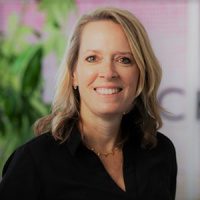
Angie Taylor serves as Vice President – Chief Commercial Officer since January 1, 2020. In this role, she leads the sales, customer service and supply chain operations teams. Angie has effectively led the transformation of PPT’s sales and service model to support significant sales growth within existing and prospective customers. She has implemented and managed sales analytics, data and performance systems, implementing demand planning, material resource planning and scheduling to support customer requirements, and more effective on-boarding of new business in collaboration with our product engineering team. Angie has led the successful transition to Logility® for demand planning, inventory planning and scheduling, as well as implementation of a new customer resource management Salesforce CRM system.
Angie joined PPT in late 2017 as Director of Sales Operations. Mrs. Taylor has a diverse background in Product Development, Supply Chain and Sales and Operations Planning. Prior to her career move to PPT in 2017, Taylor served as Senior Director Sales and Operations Planning with Vista Outdoor, a leading global designer, manufacturer, and marketer of consumer products in the outdoor sports and recreation markets from 2014-2017 prior to that she spent 13 years with Gear for Sports, a division of Hanesbrands Inc. and a leading manufacturer/wholesaler of custom branded apparel for Under Armour®, Champion®, and Gear® brands holding positions as Director of Brand Development and Director of Sales Forecasting and Planning. Mrs. Taylor stays highly involved in Supply Chain and inside her industry; earning her Certified Supply Chain Professional from ASCM, she also serves on the Flexible Packaging Associations- Emerging Leaders Council. In 2017 Taylor was recognized as Practitioner Pros to Know by Supply & Demand Chain Executive Magazine. Other Honors include a focus towards driving improvements involving Supply Chain processes and automation with a 2014 Logility SAILS Leadership Award Winner and 2017 Sailing to New Heights Award. Mrs. Taylor earned a B.S. in Textile Marketing with a Minor in Business Management from Kansas State University. Connect with Angie on Linkedin.
